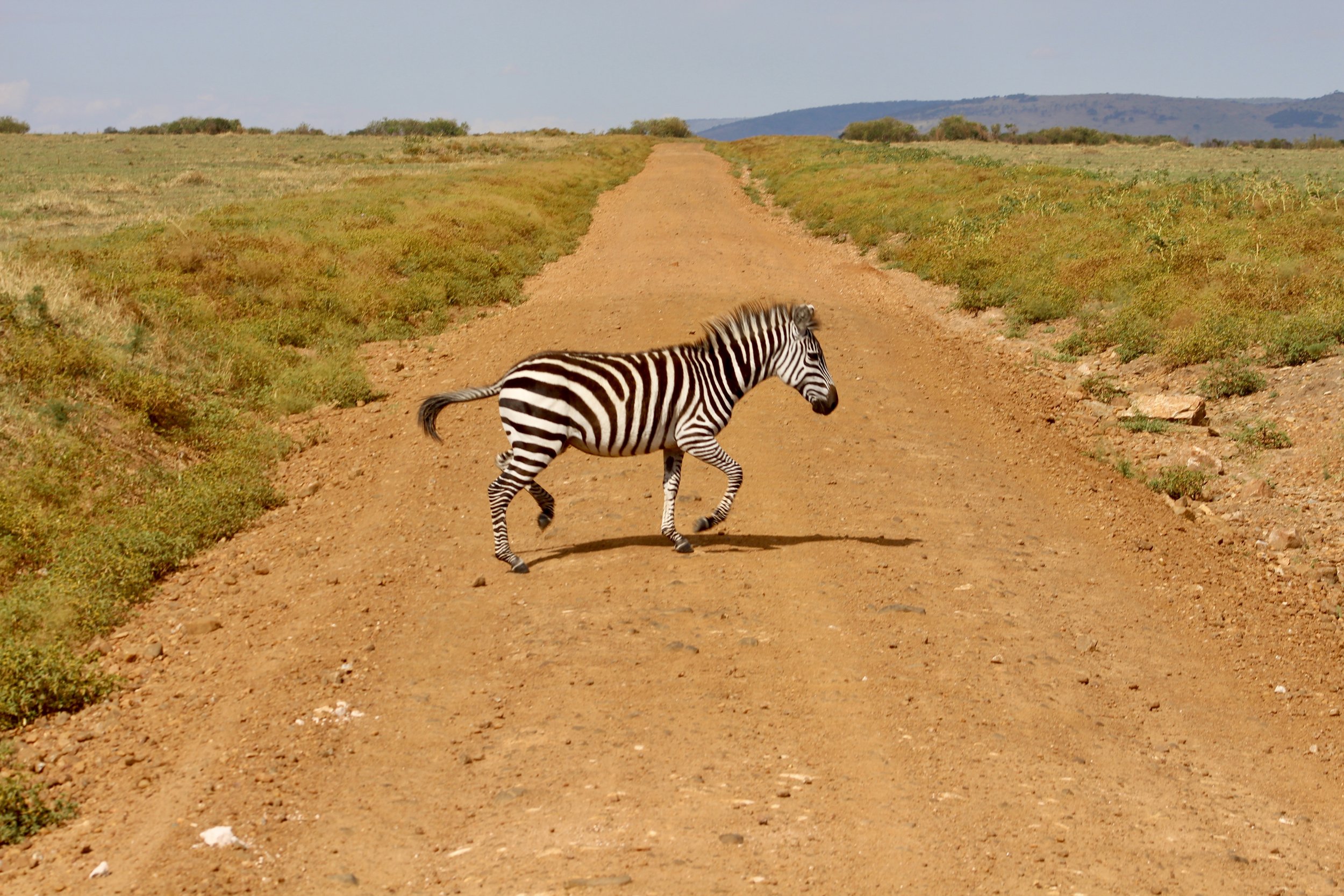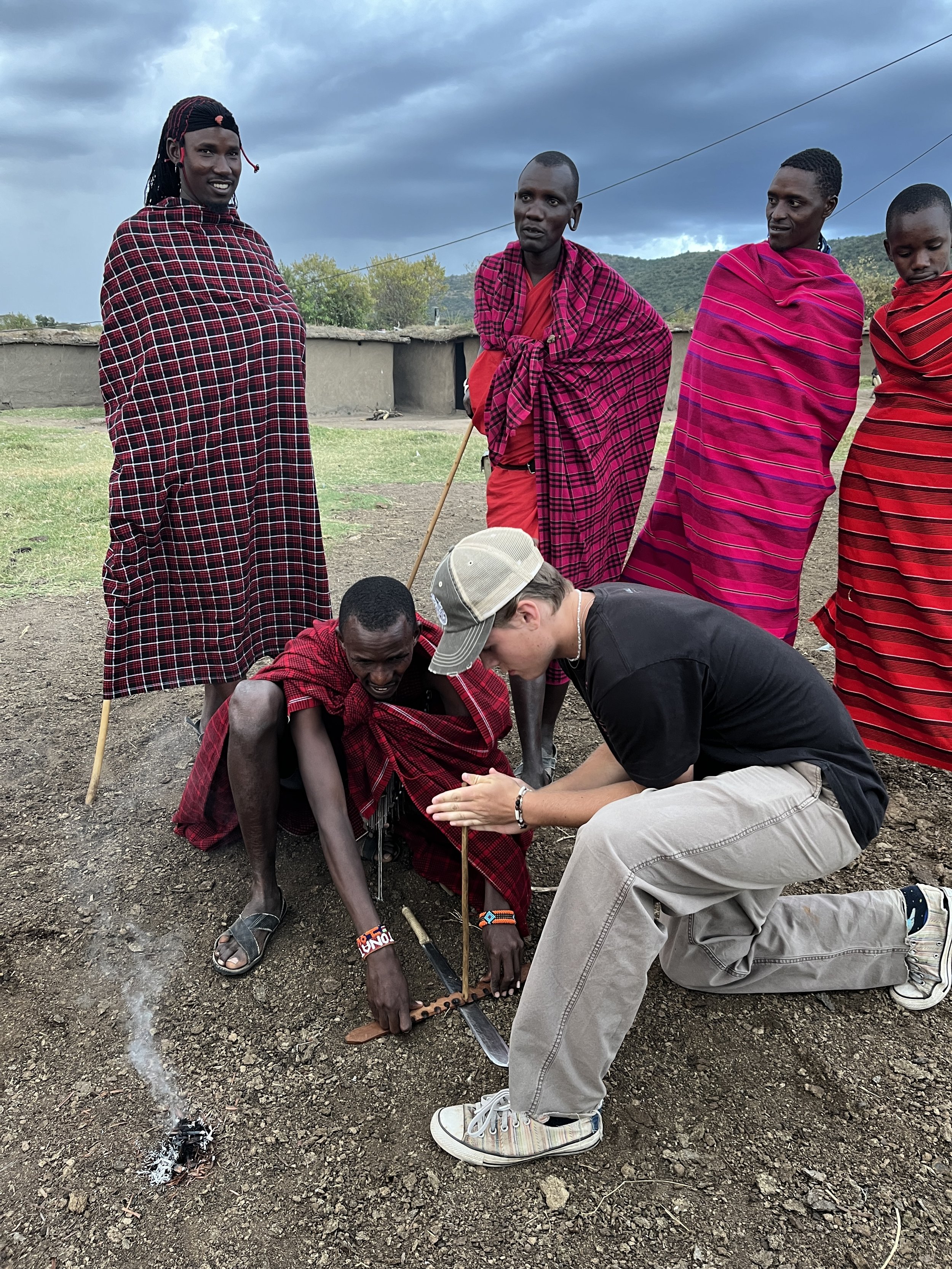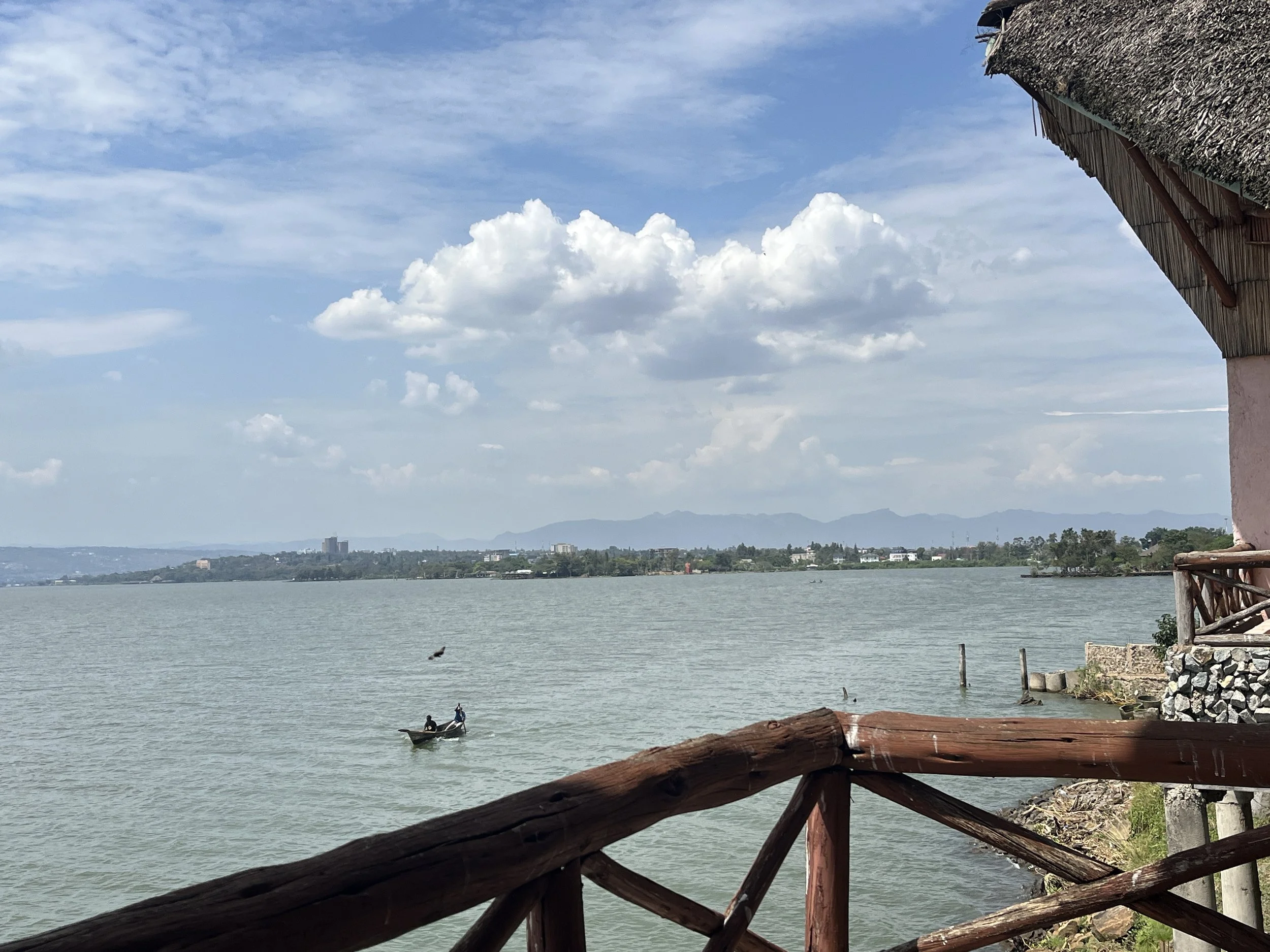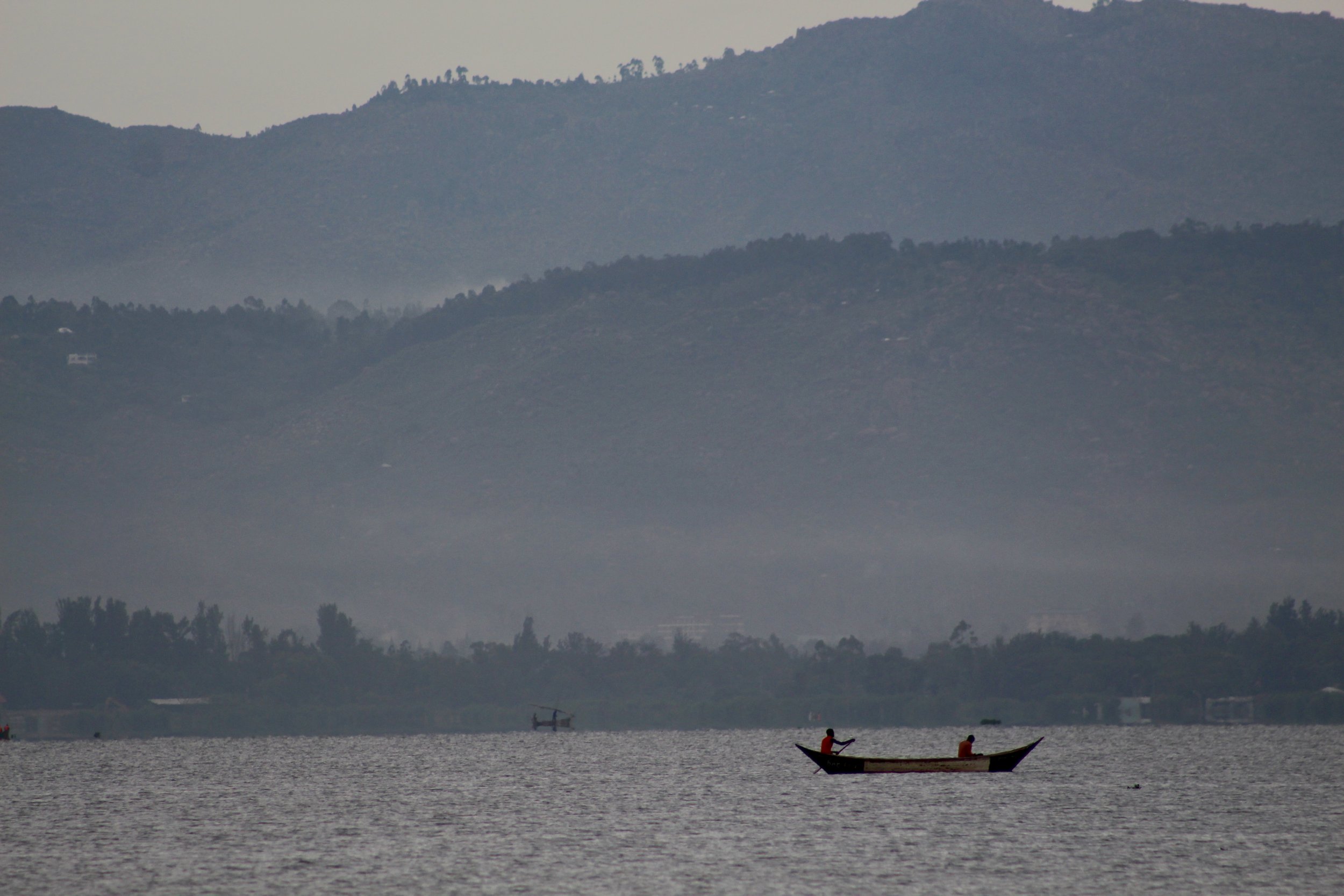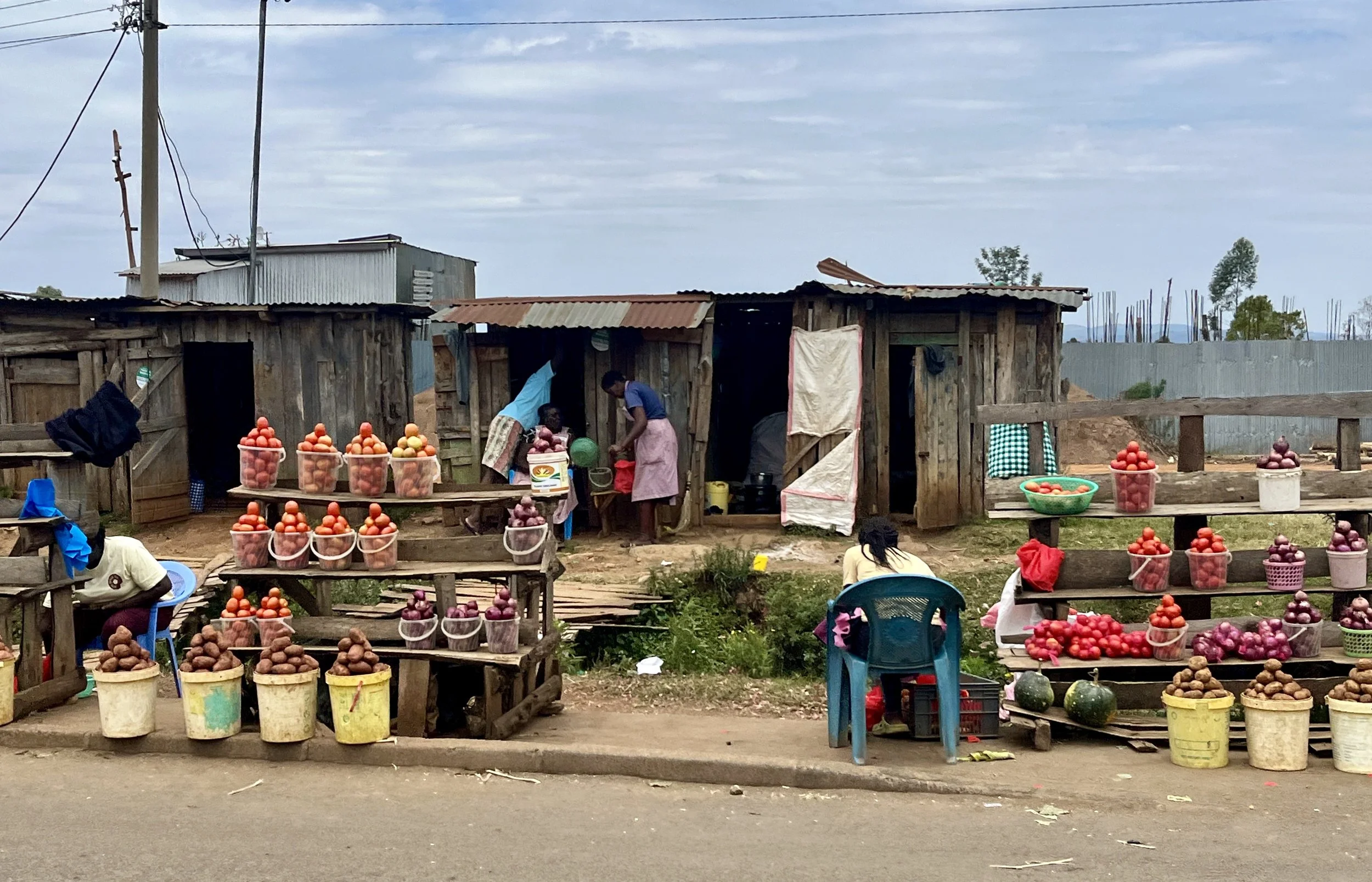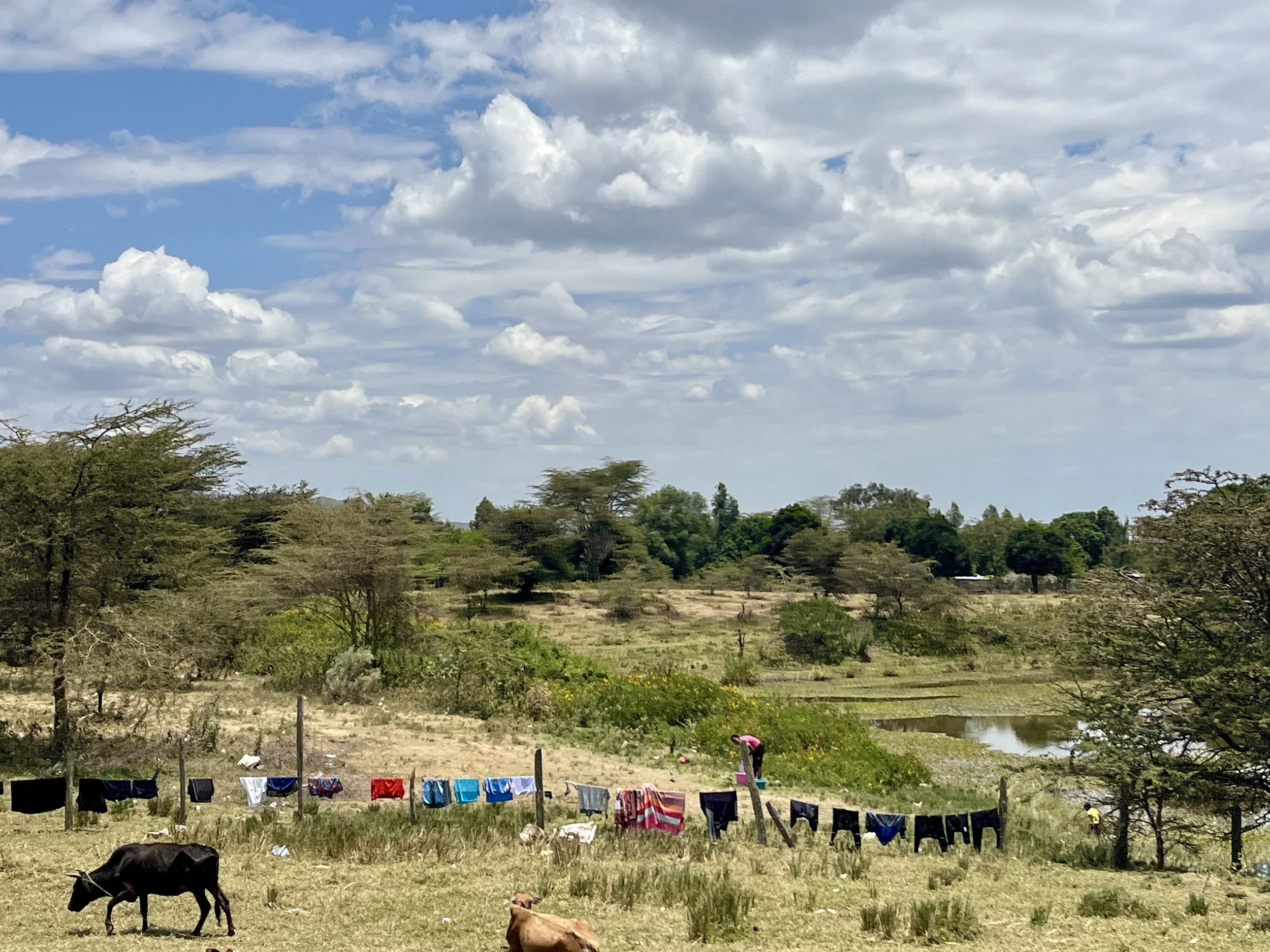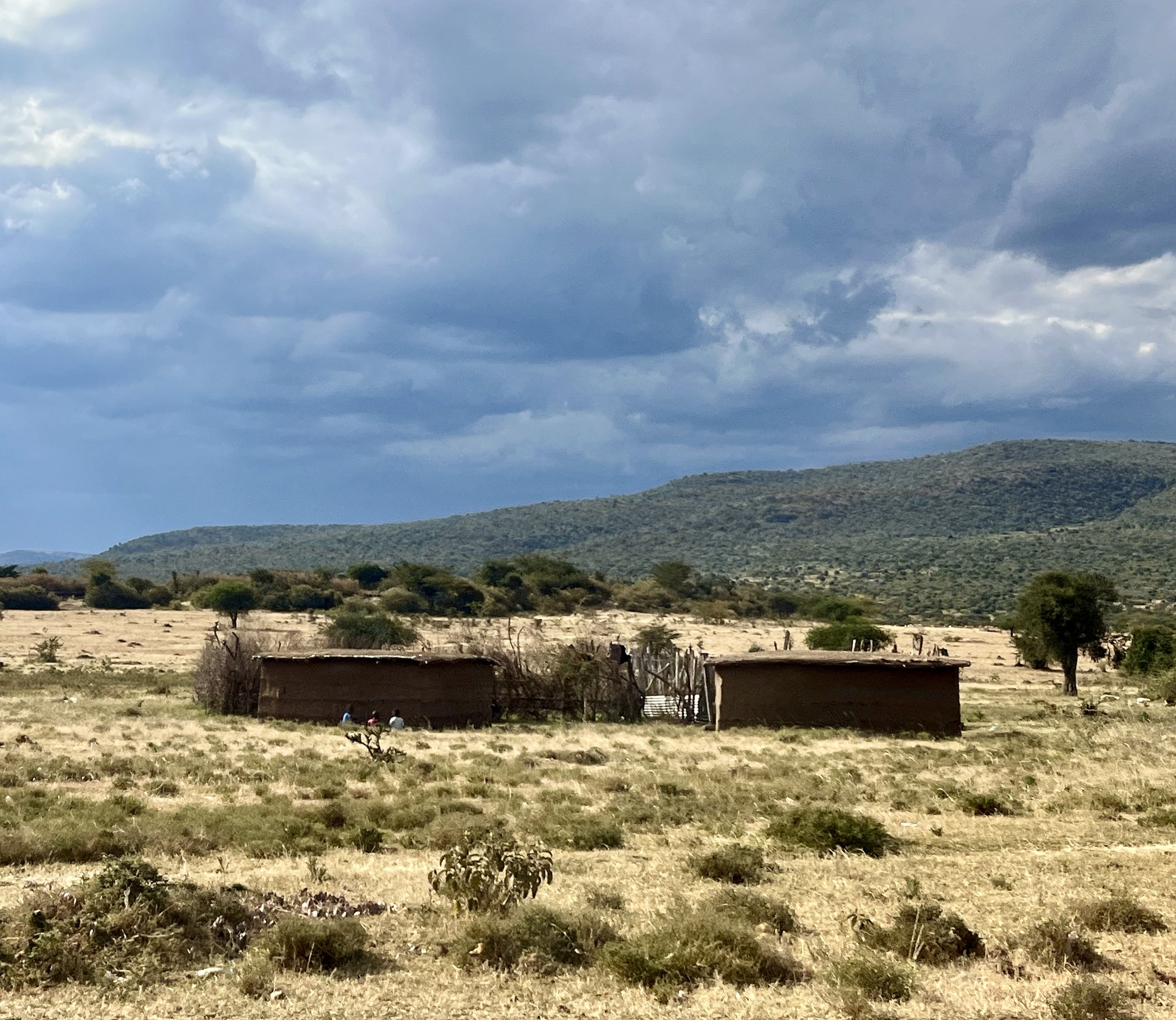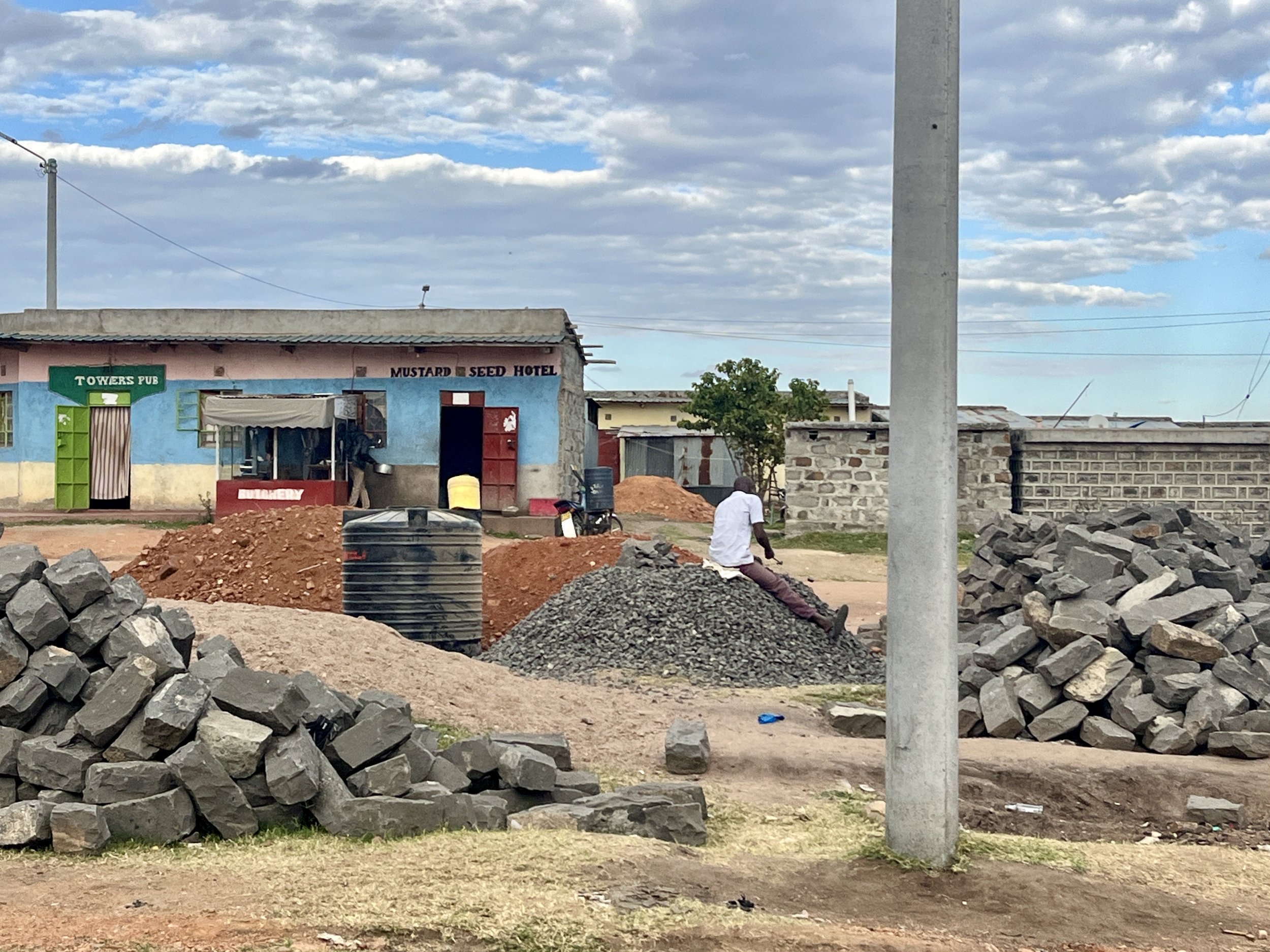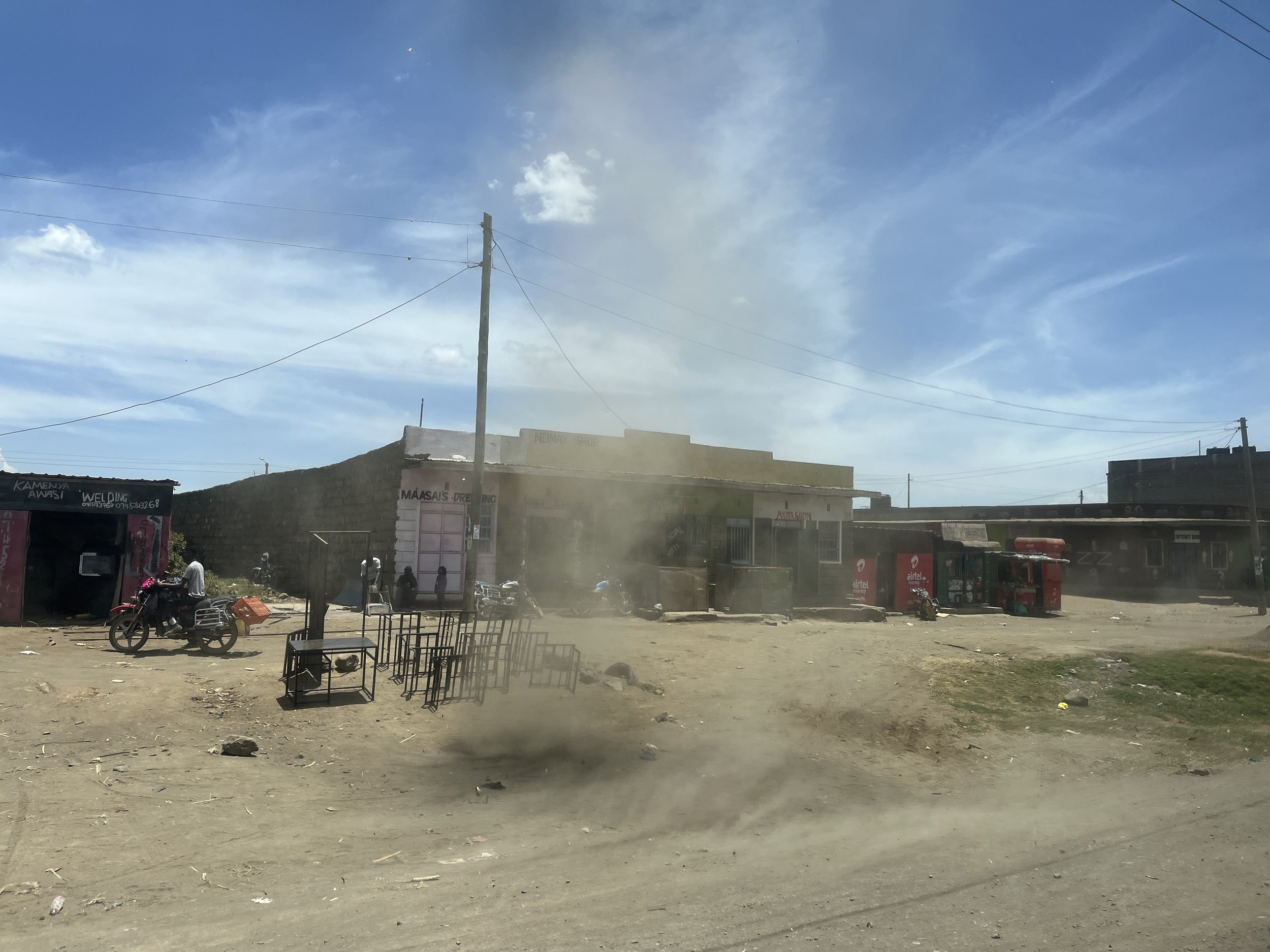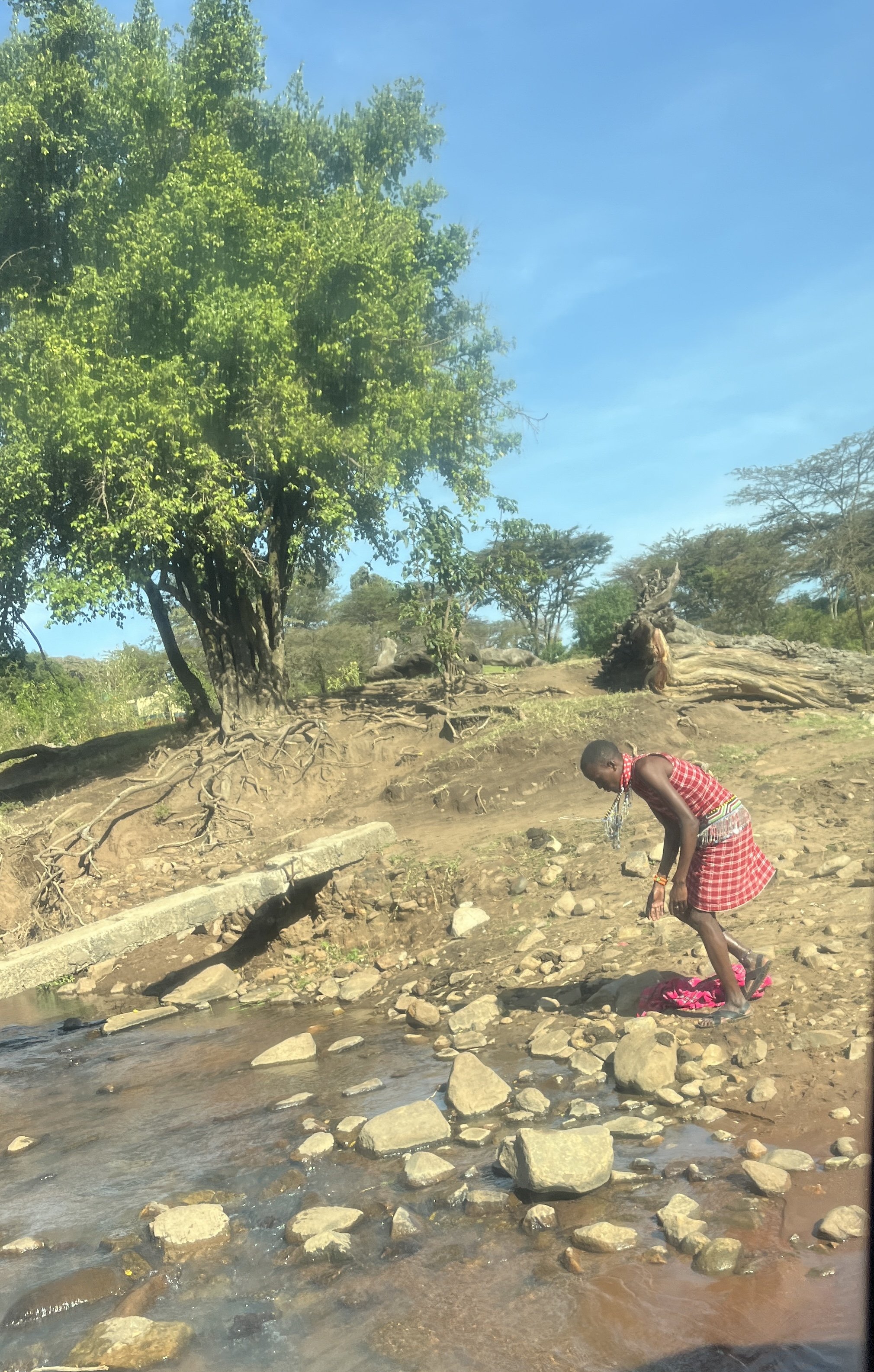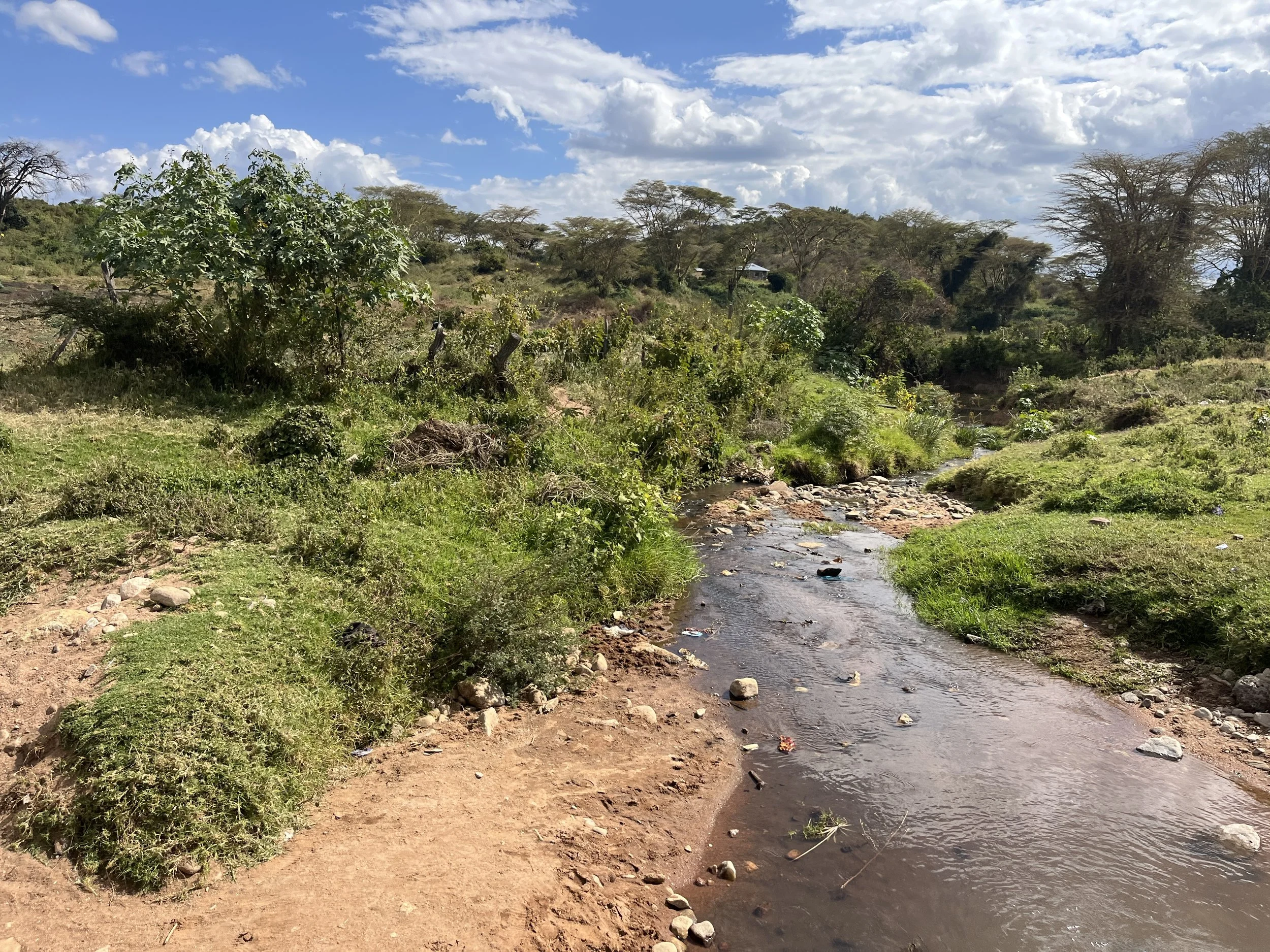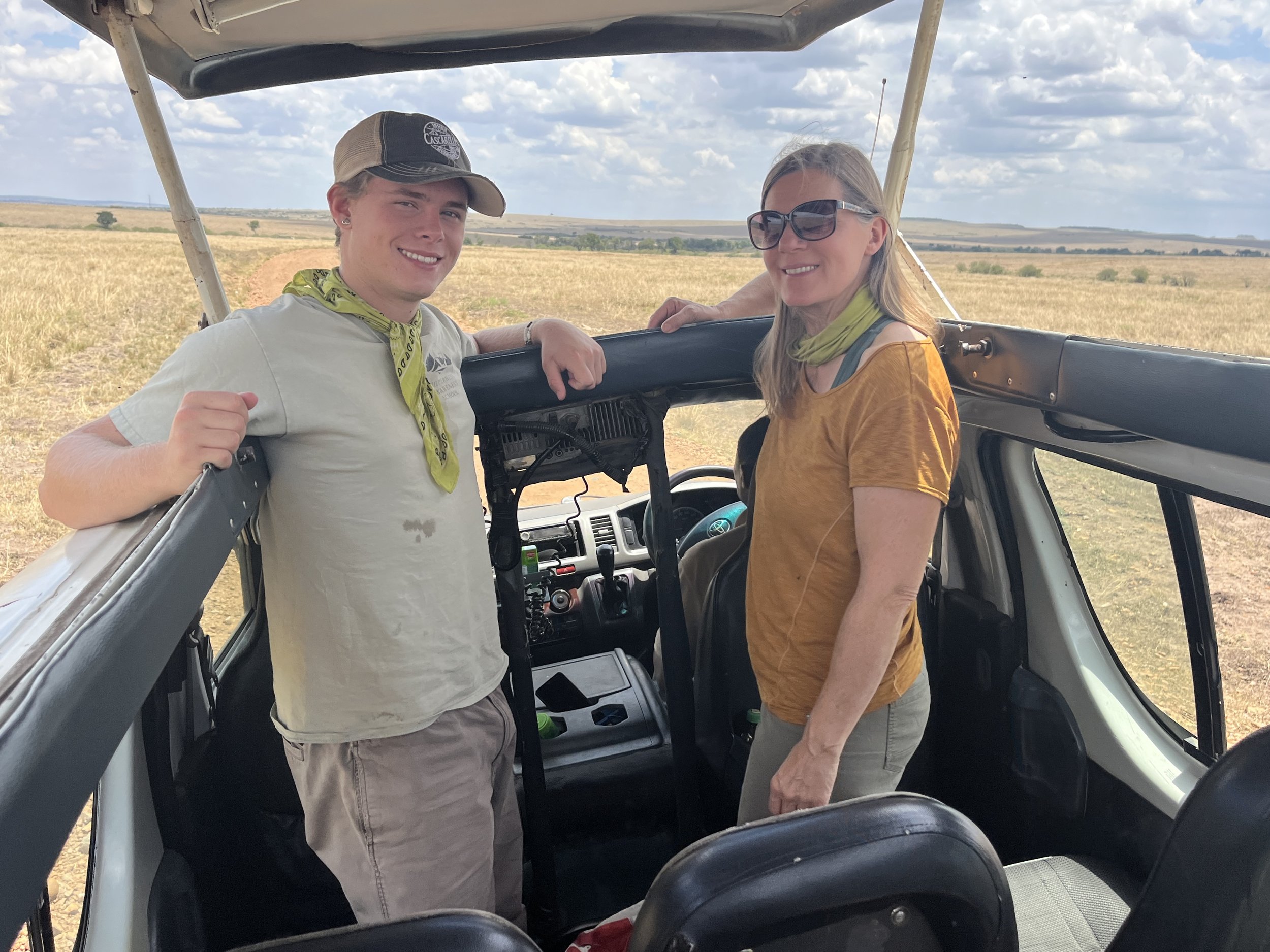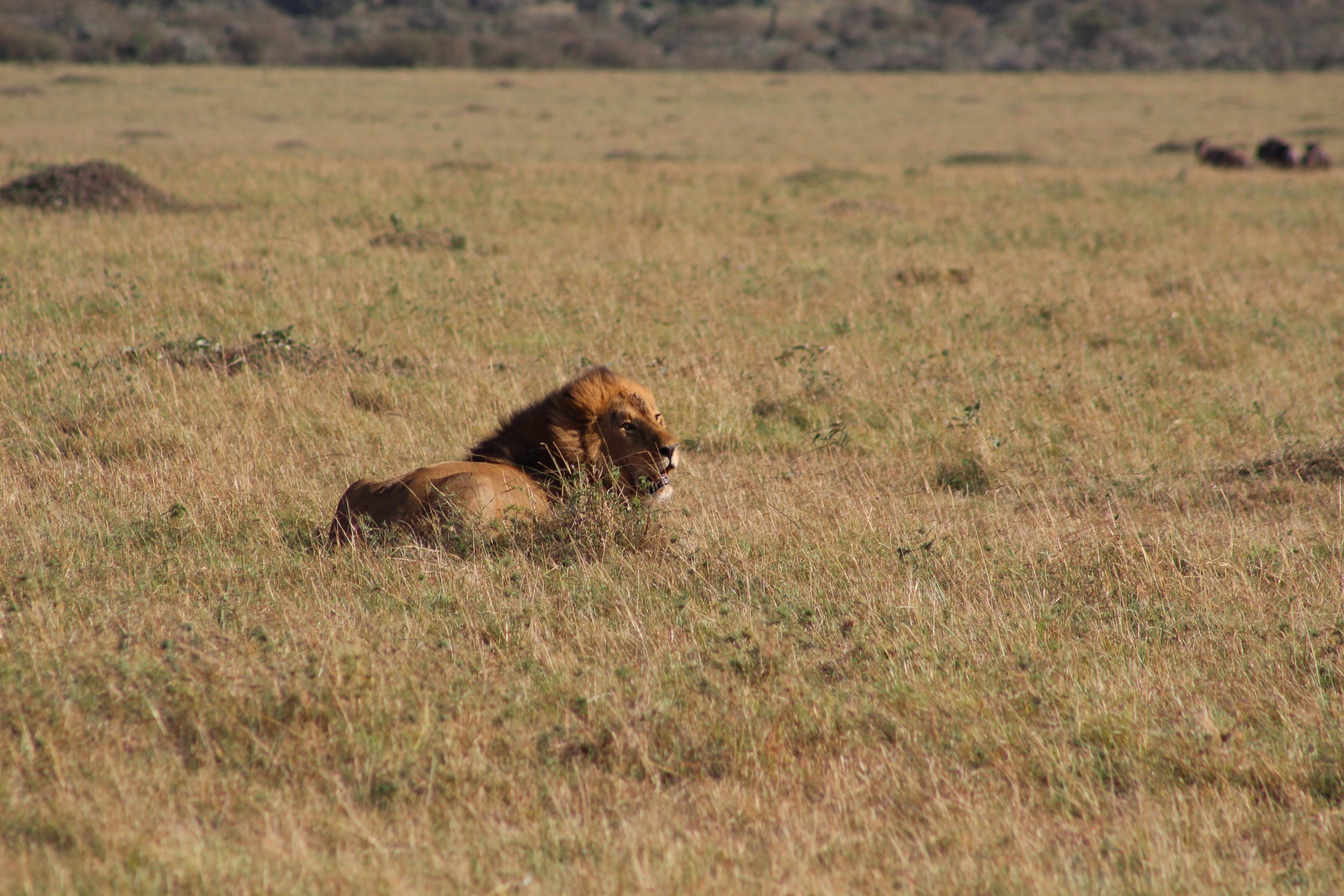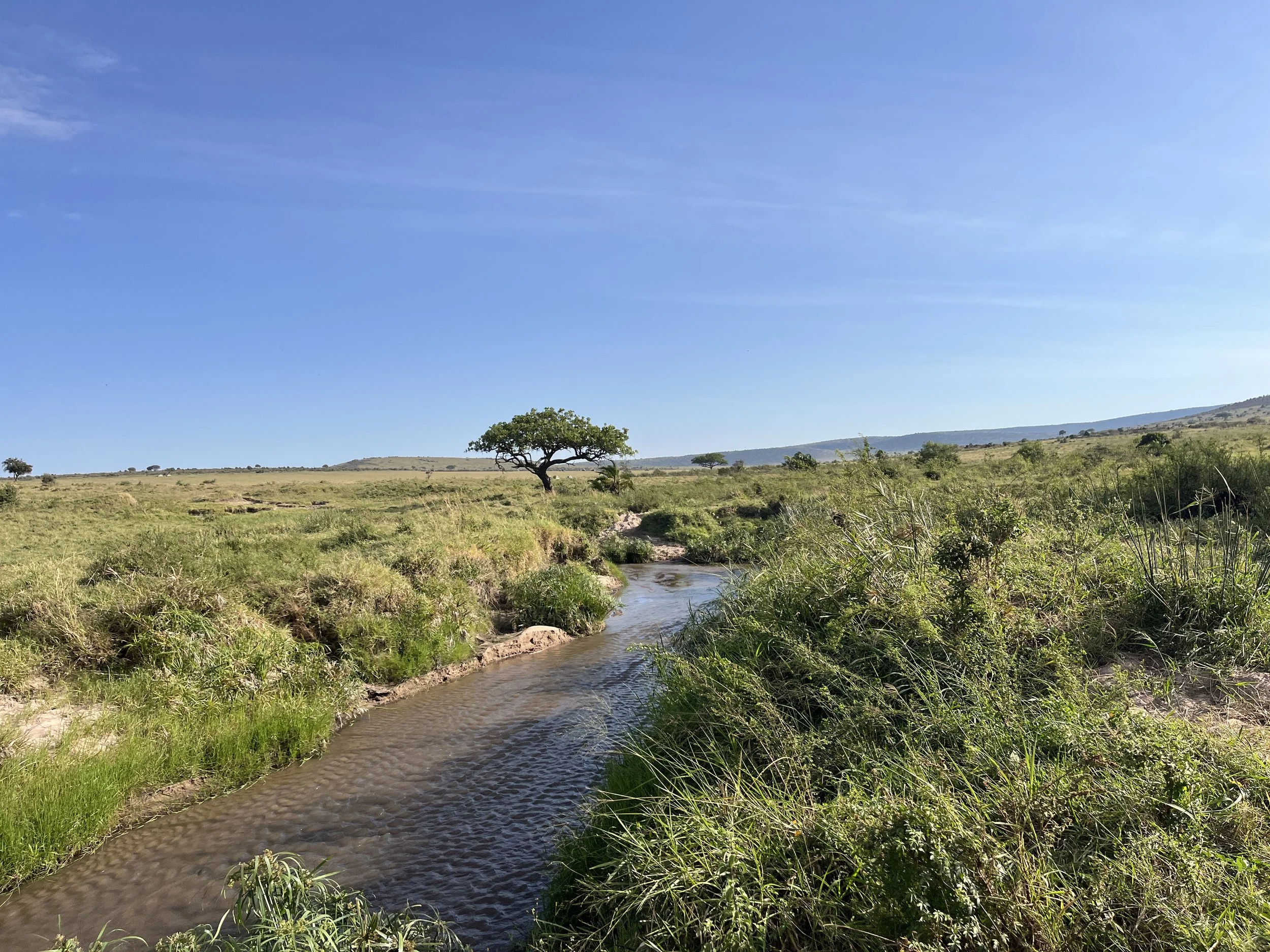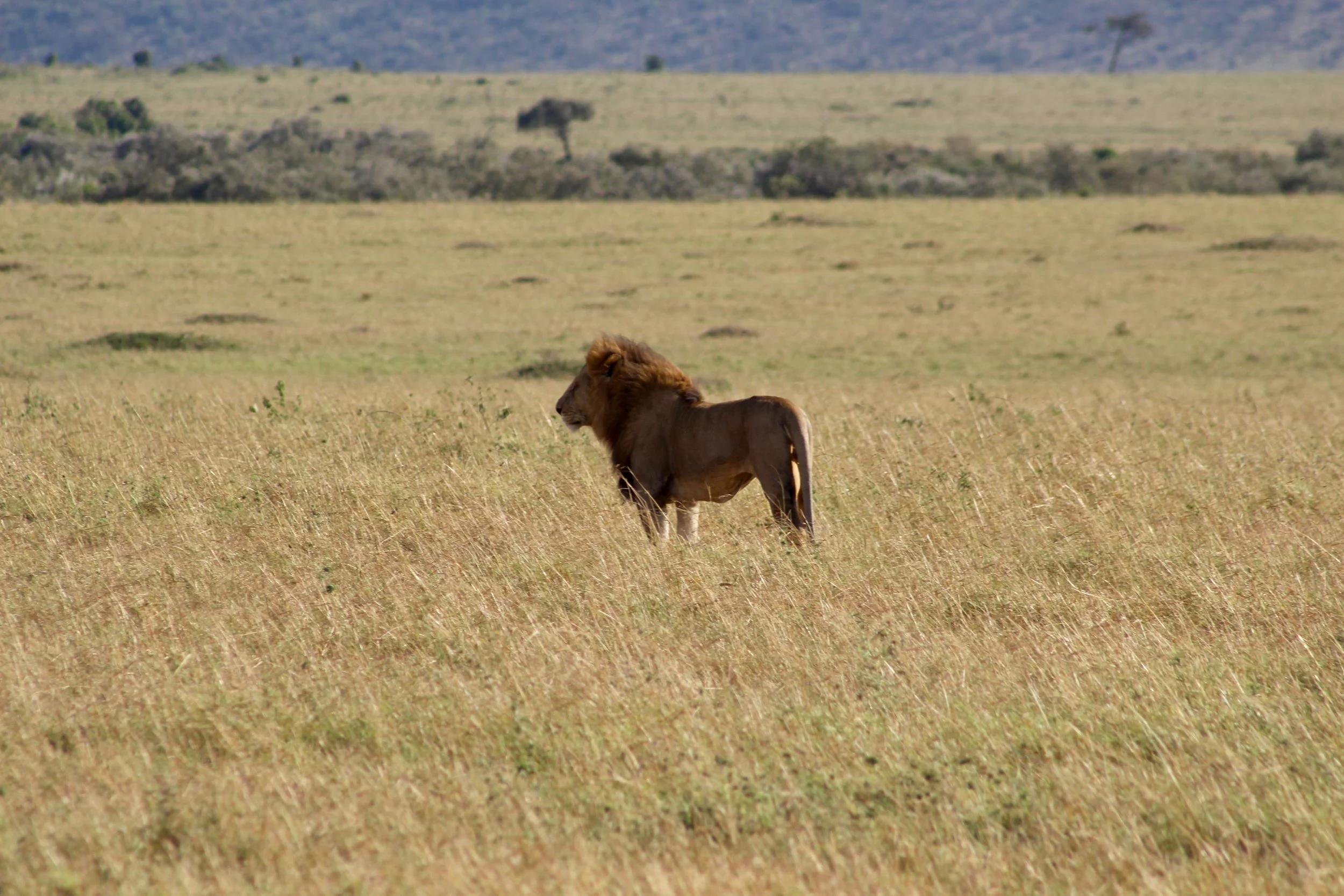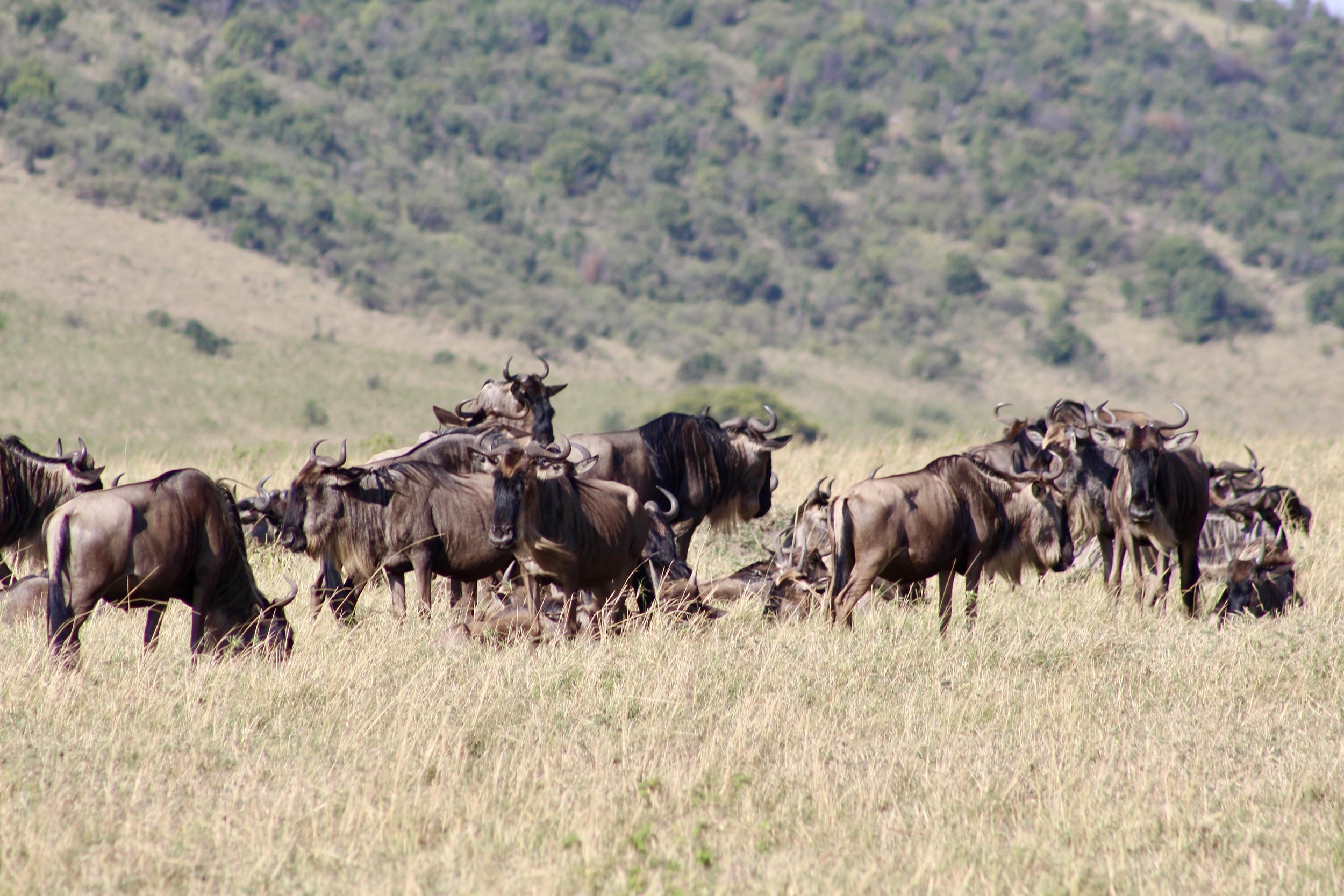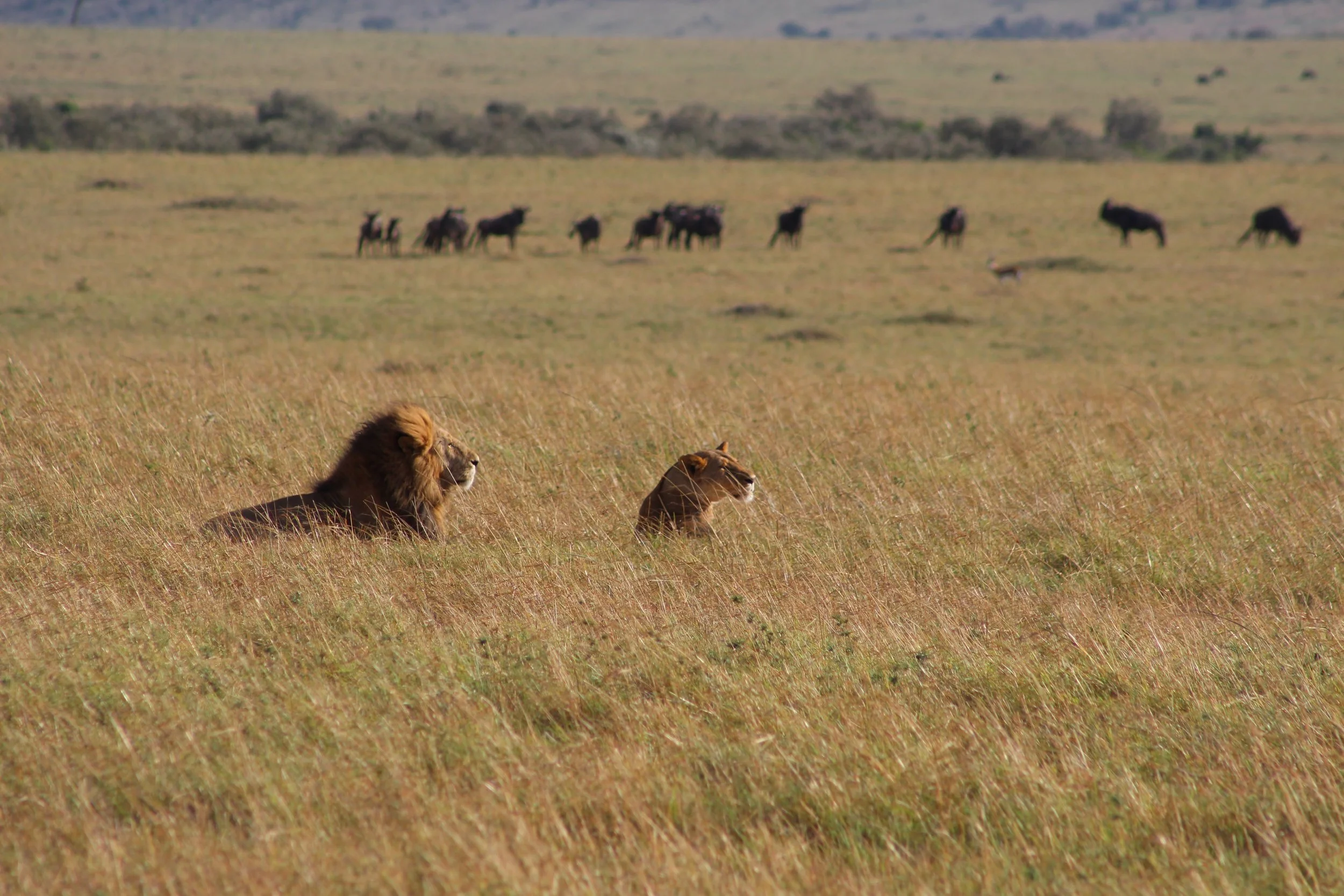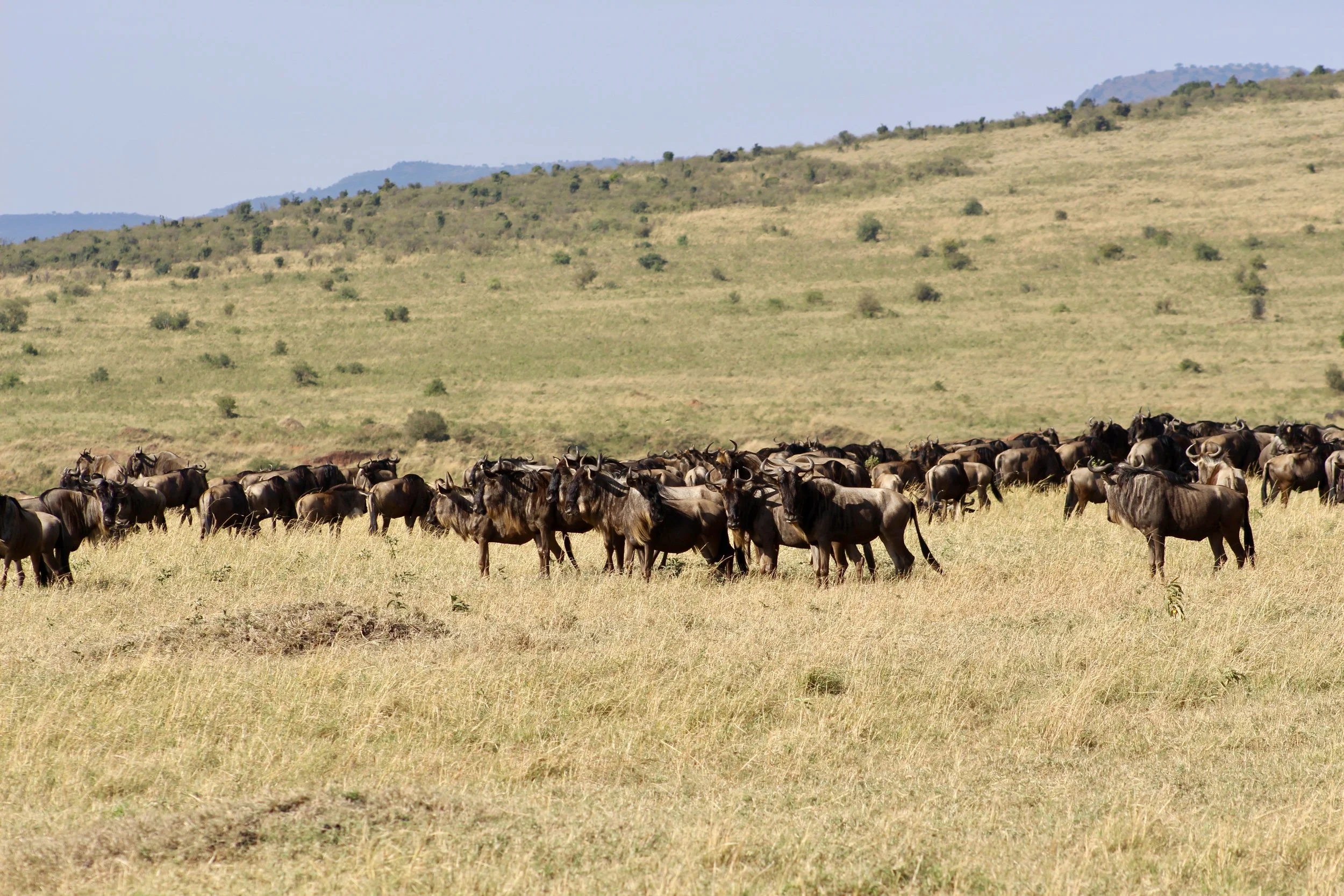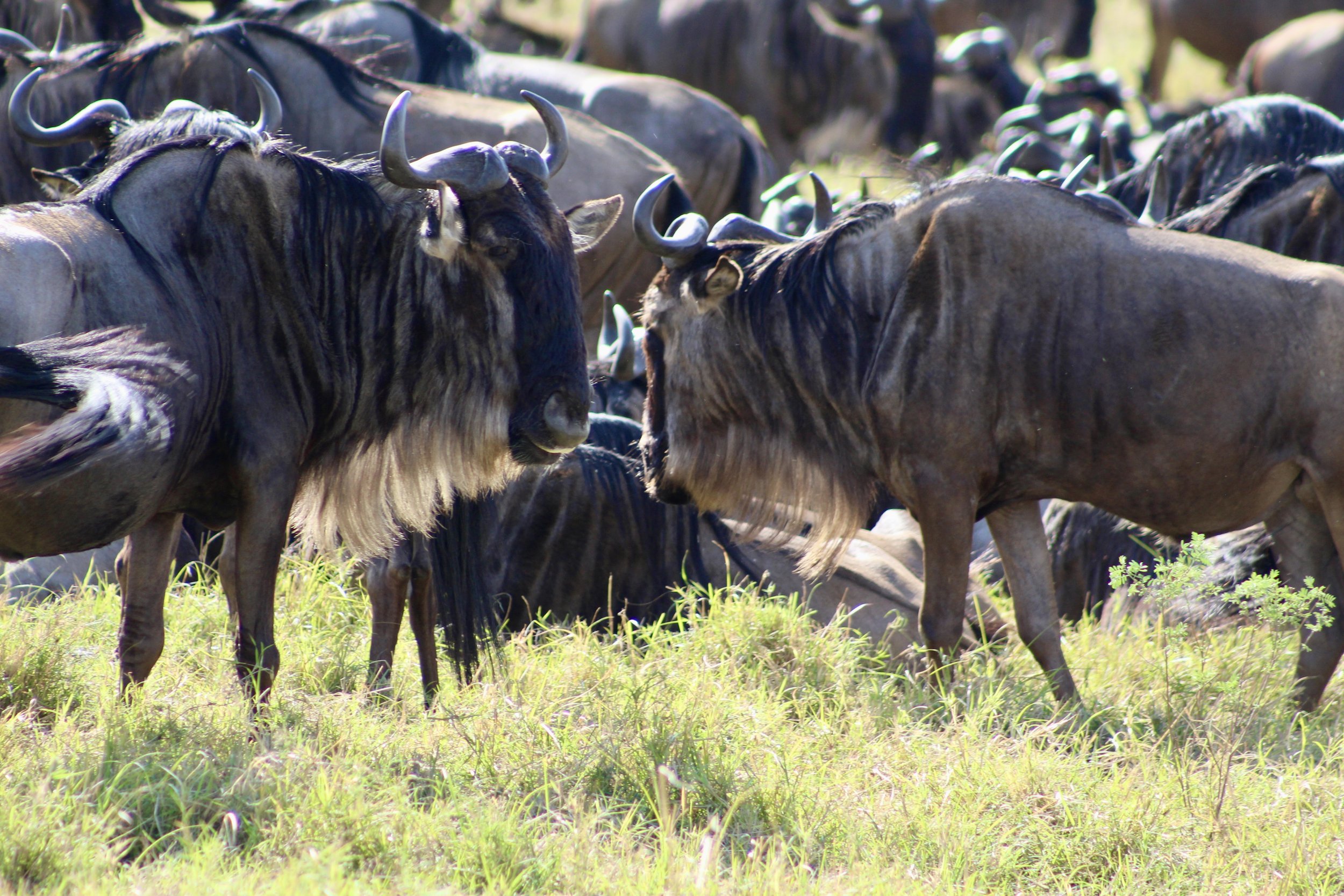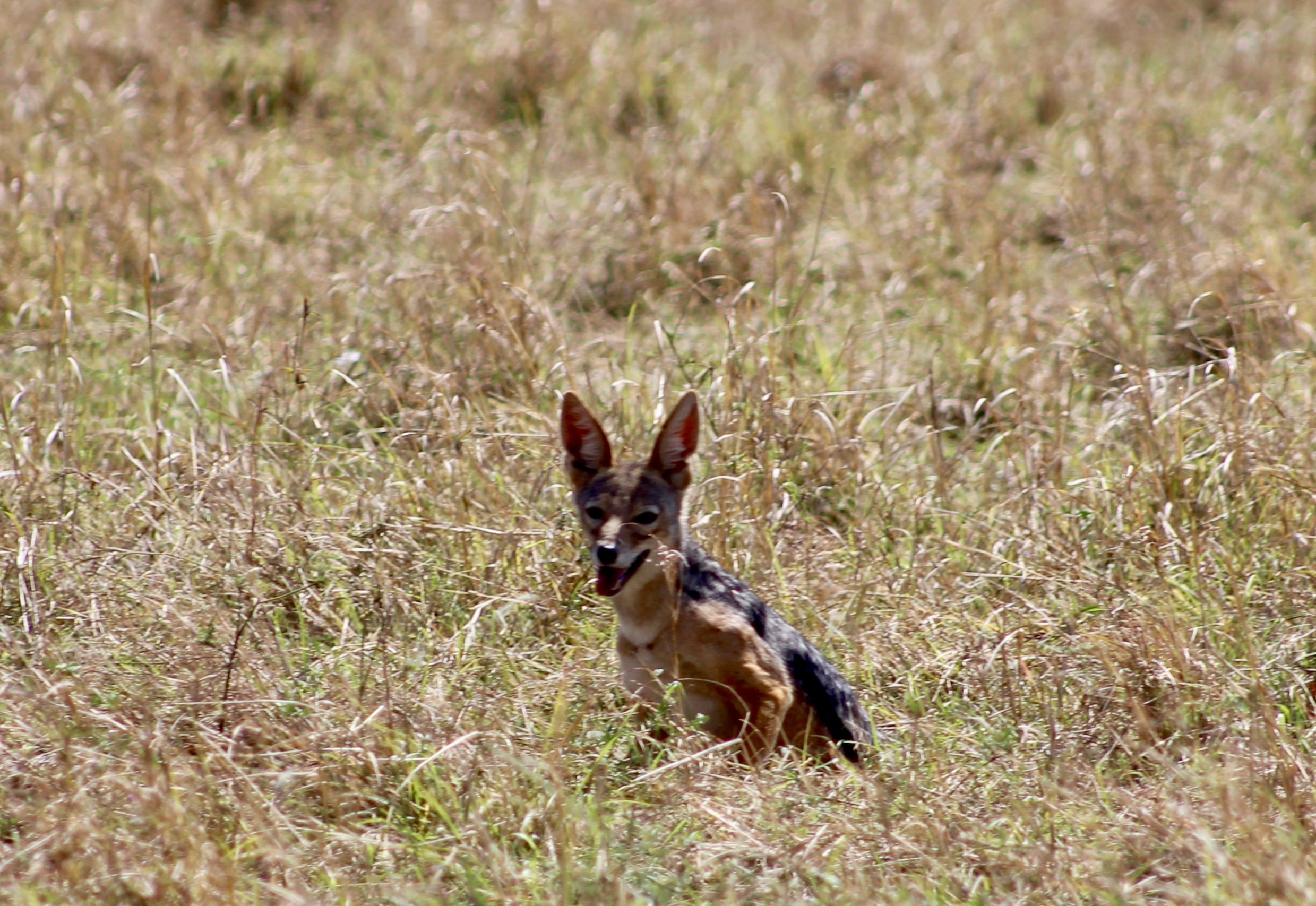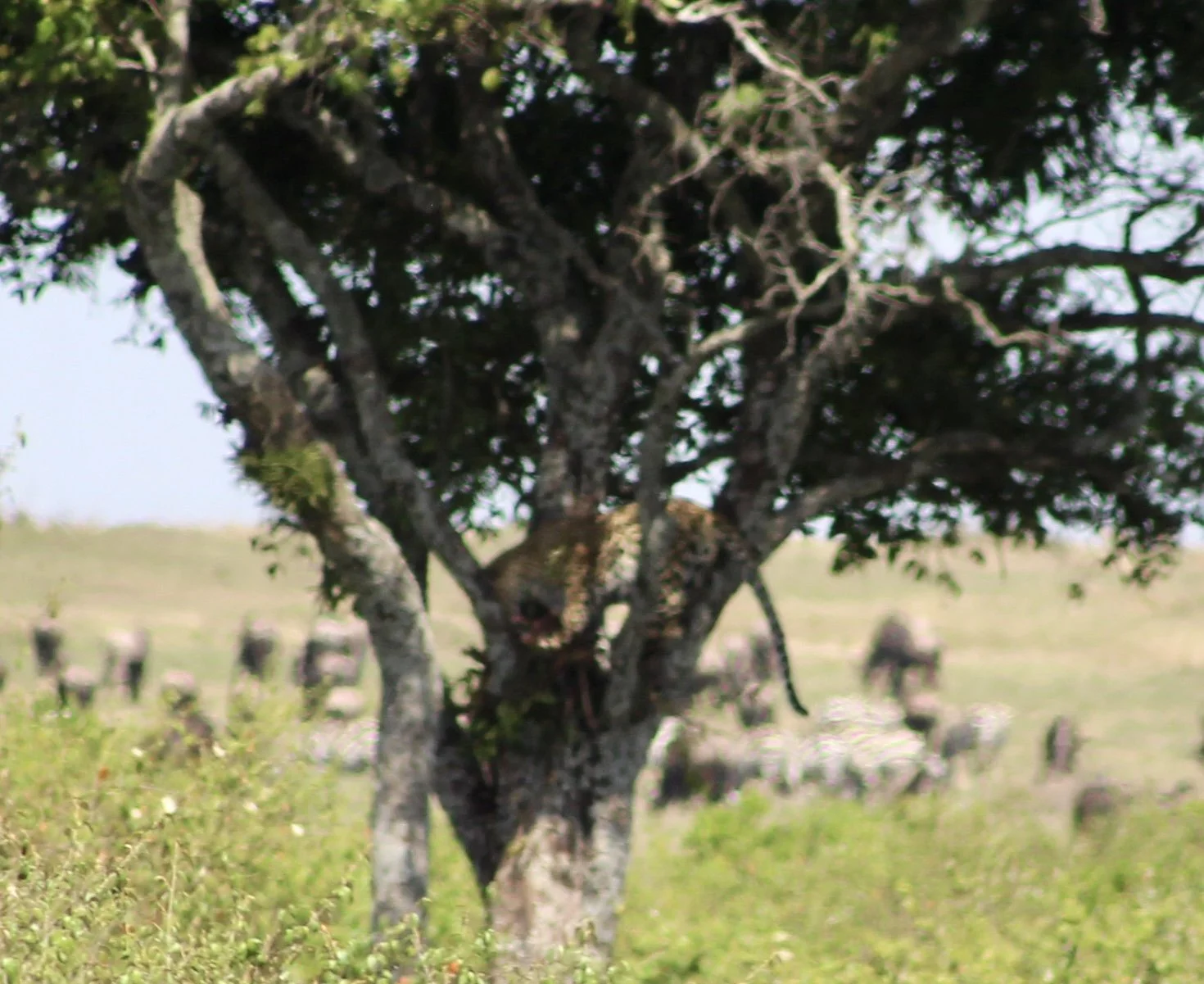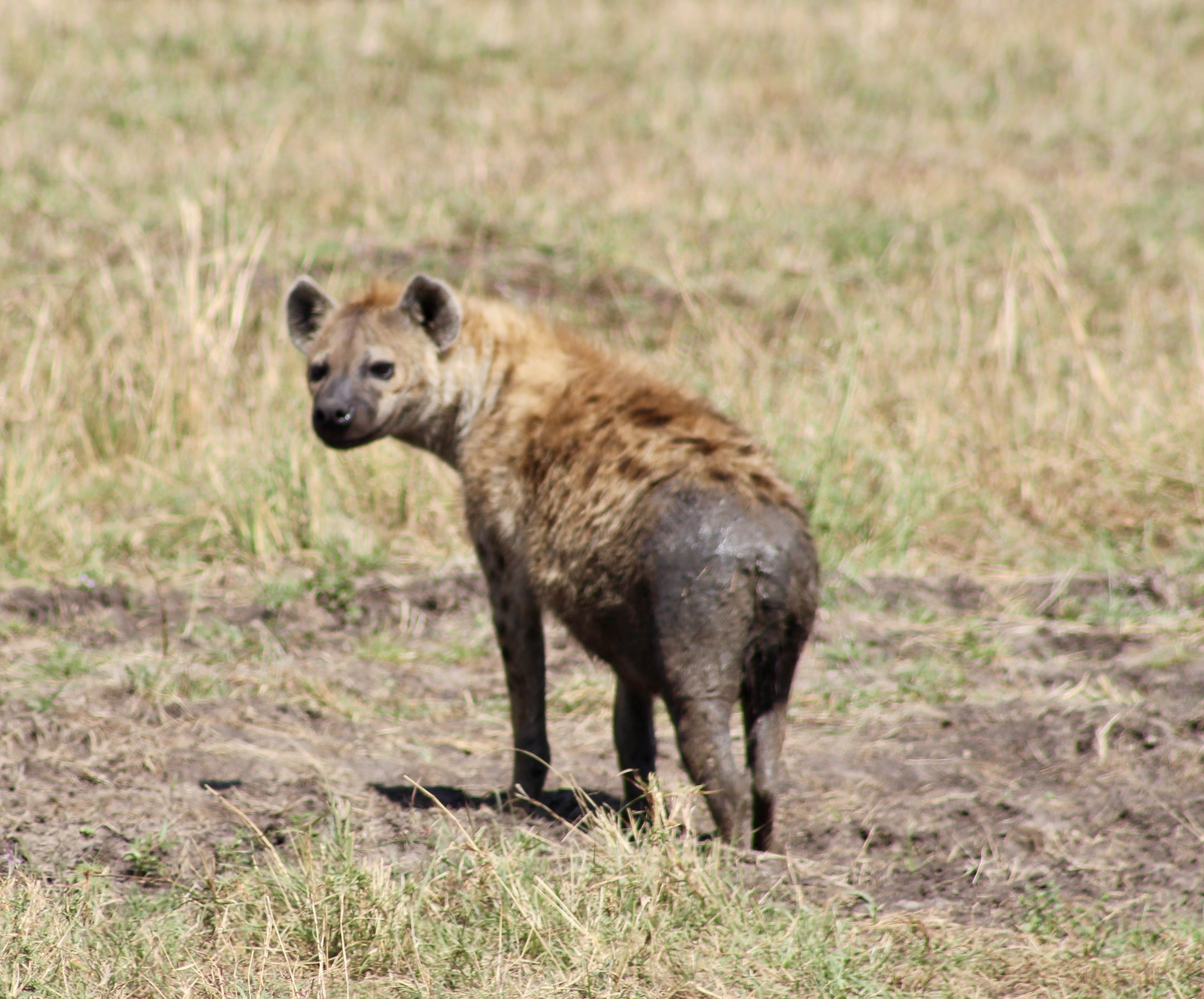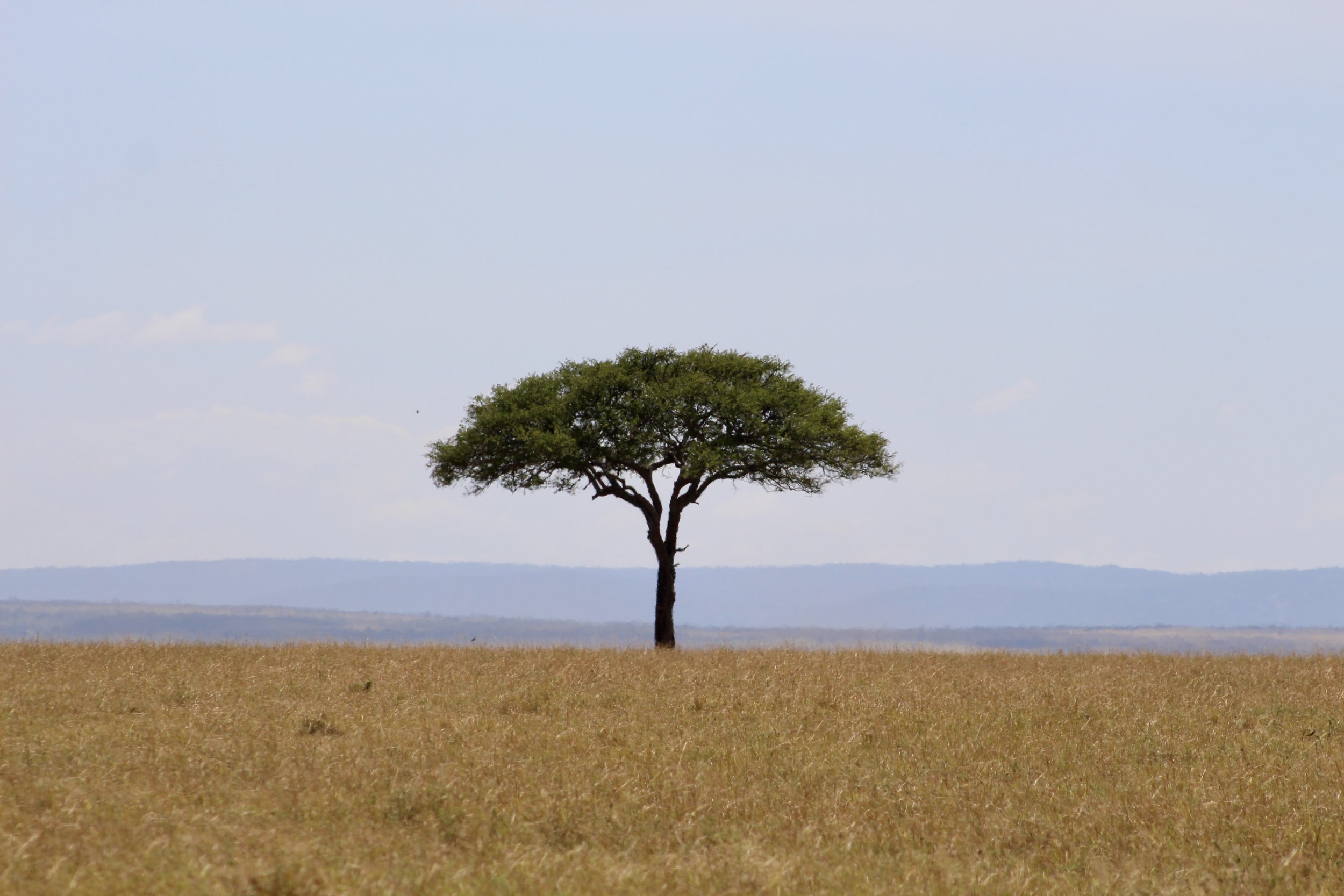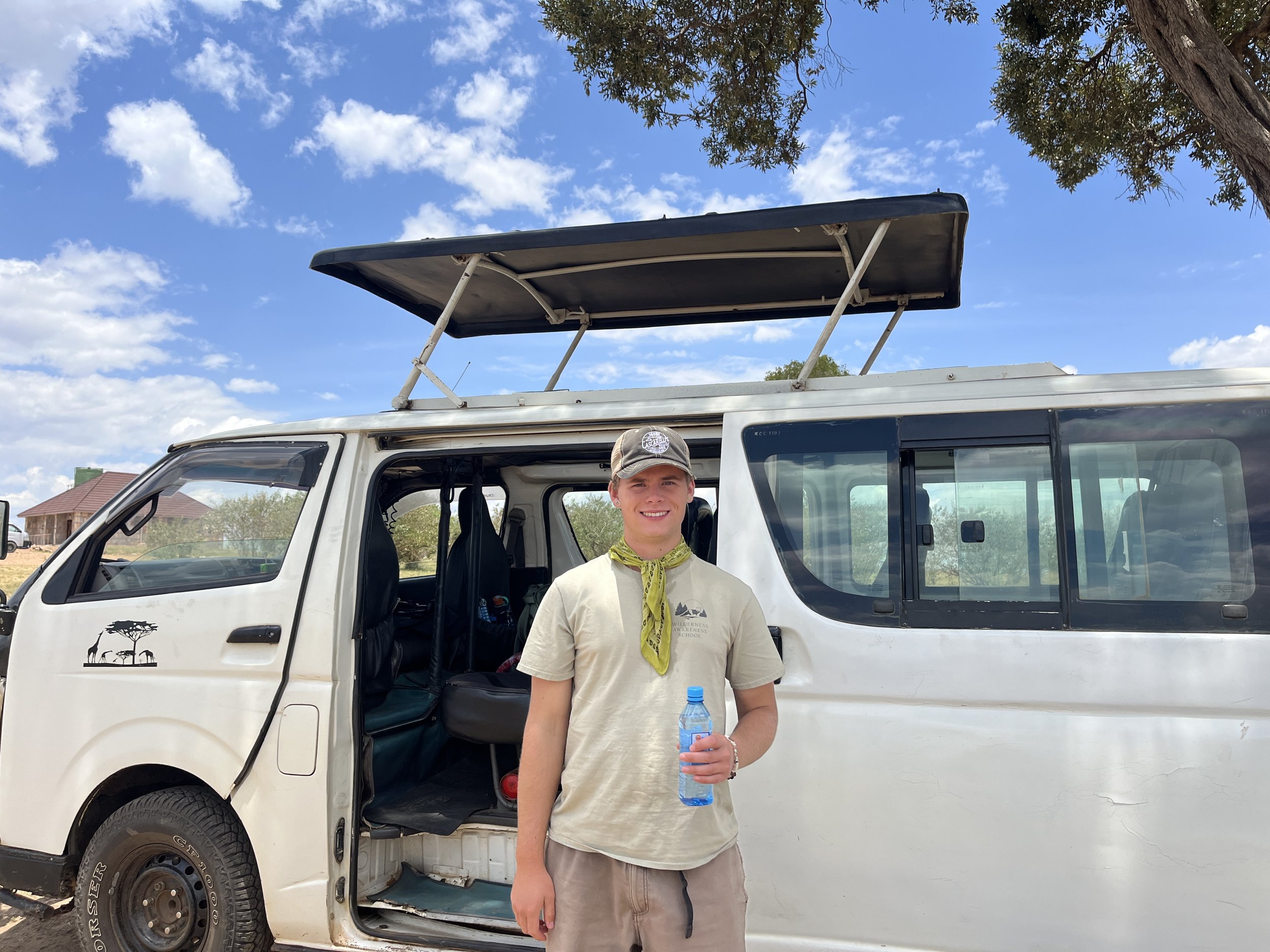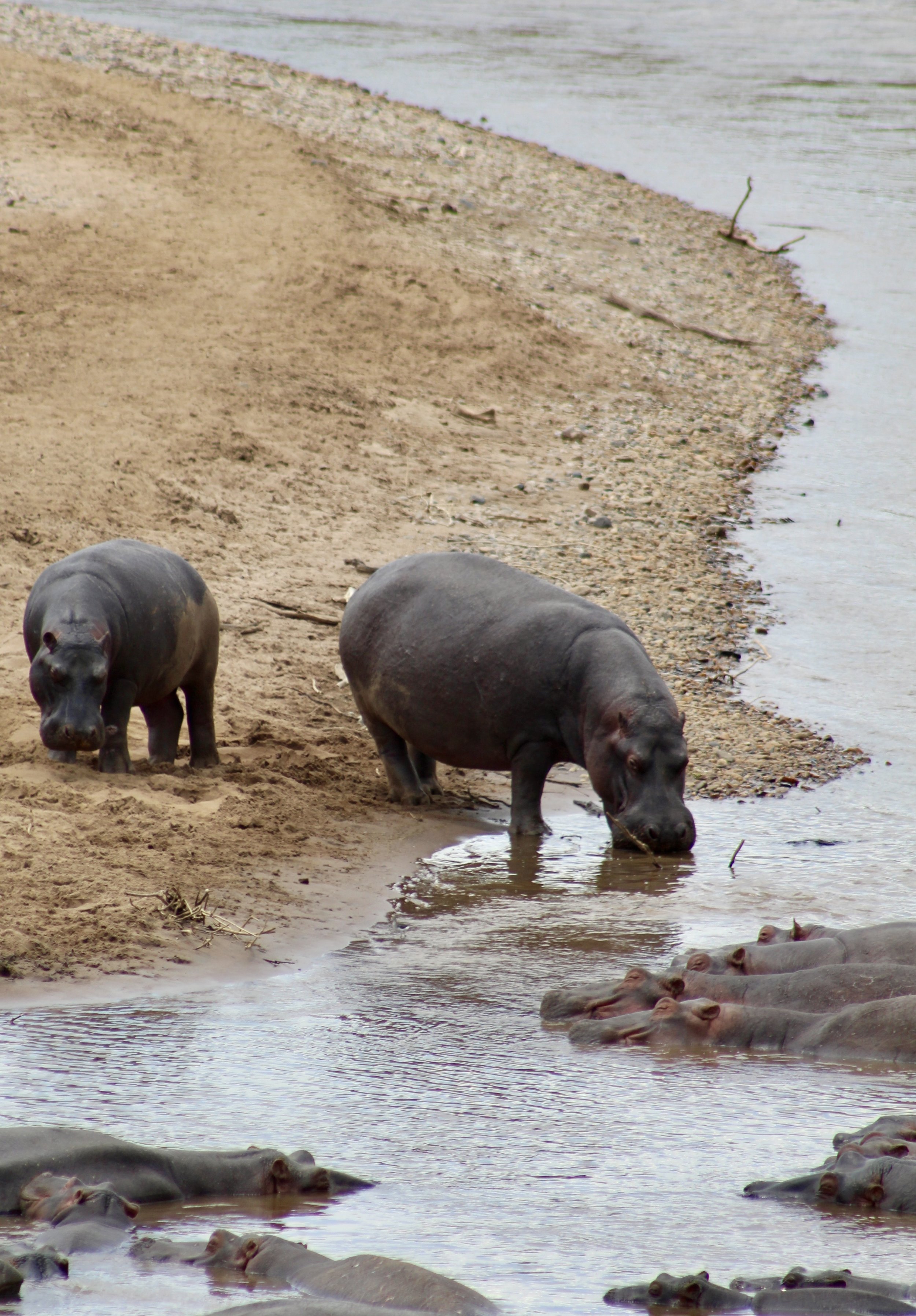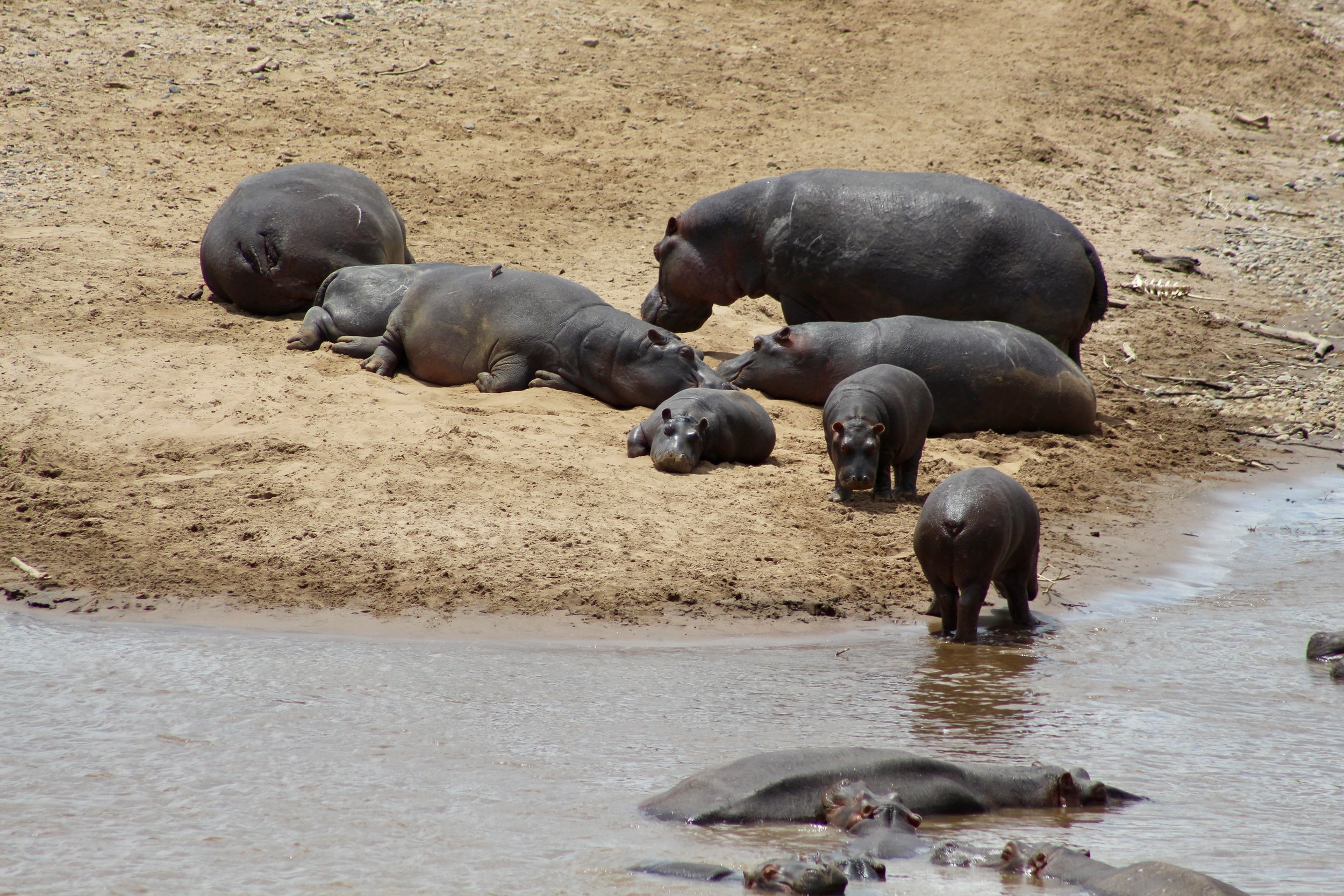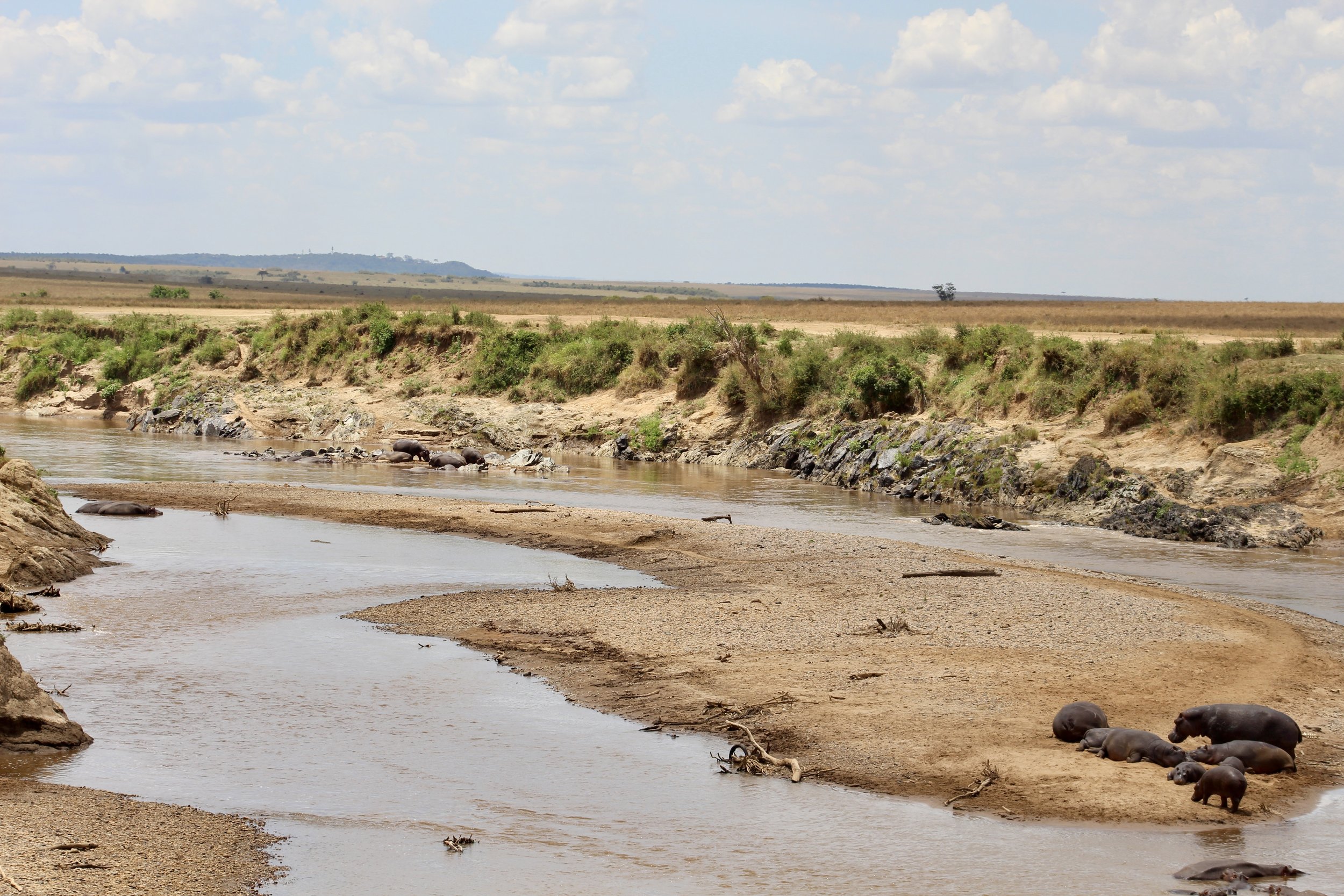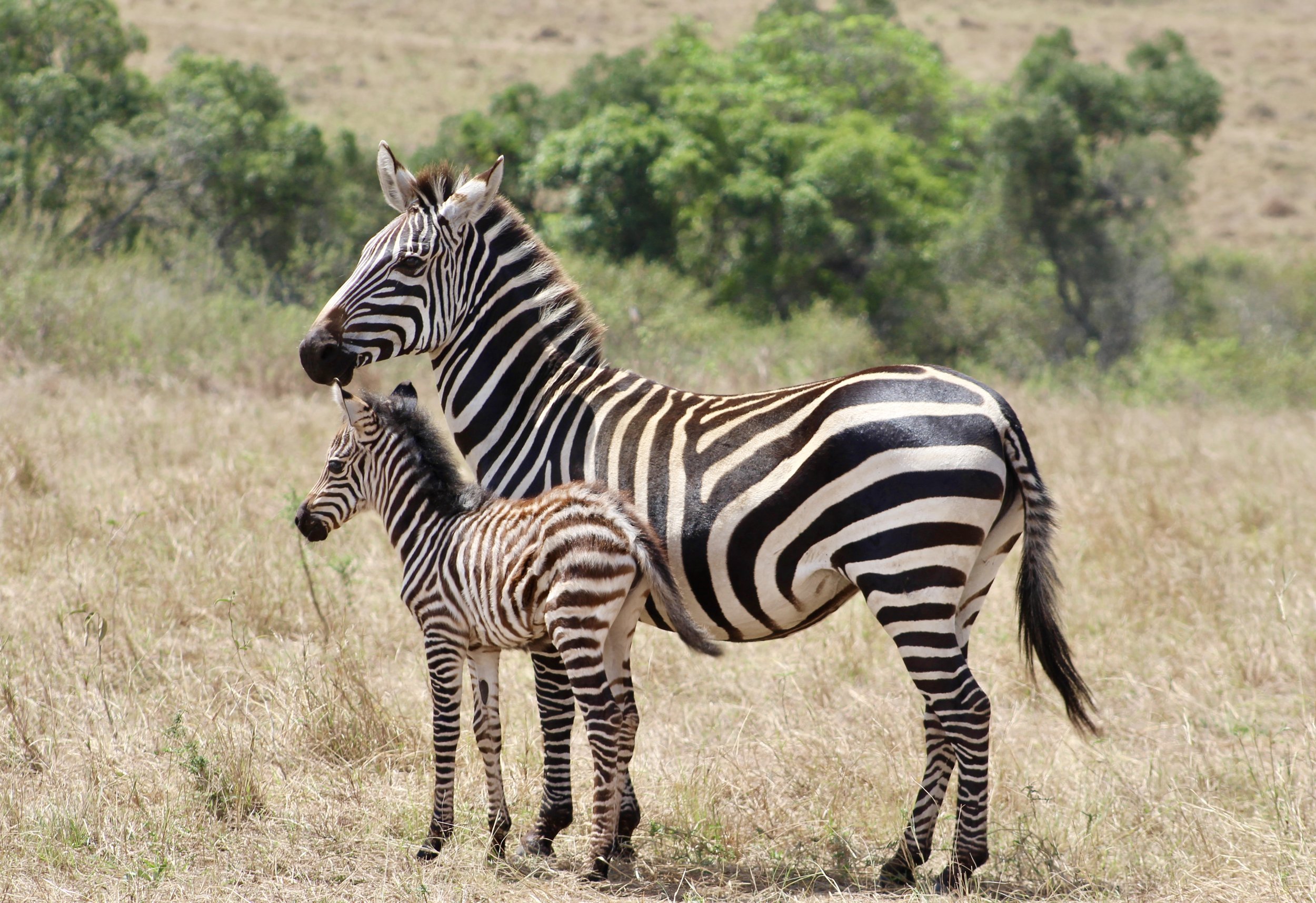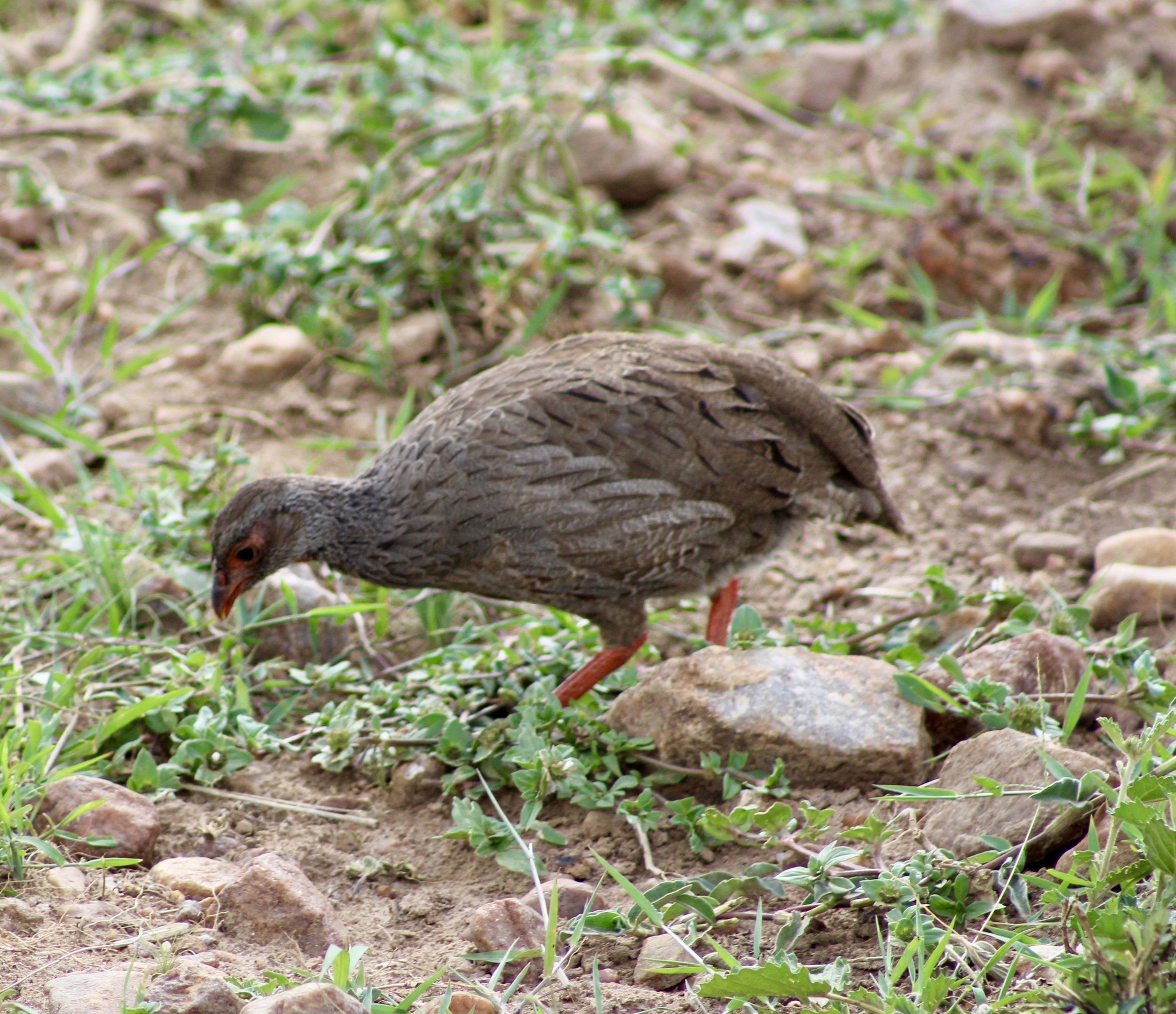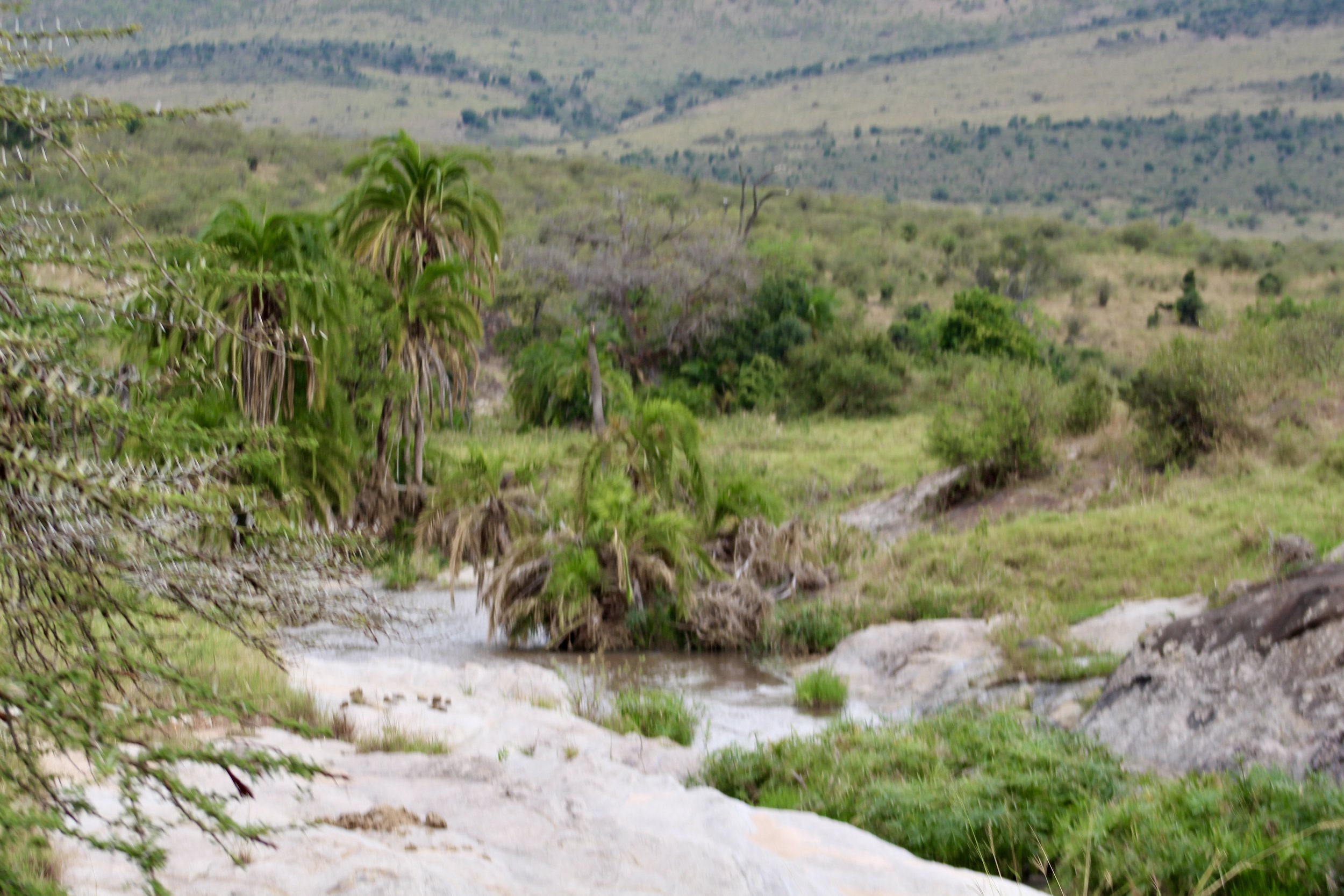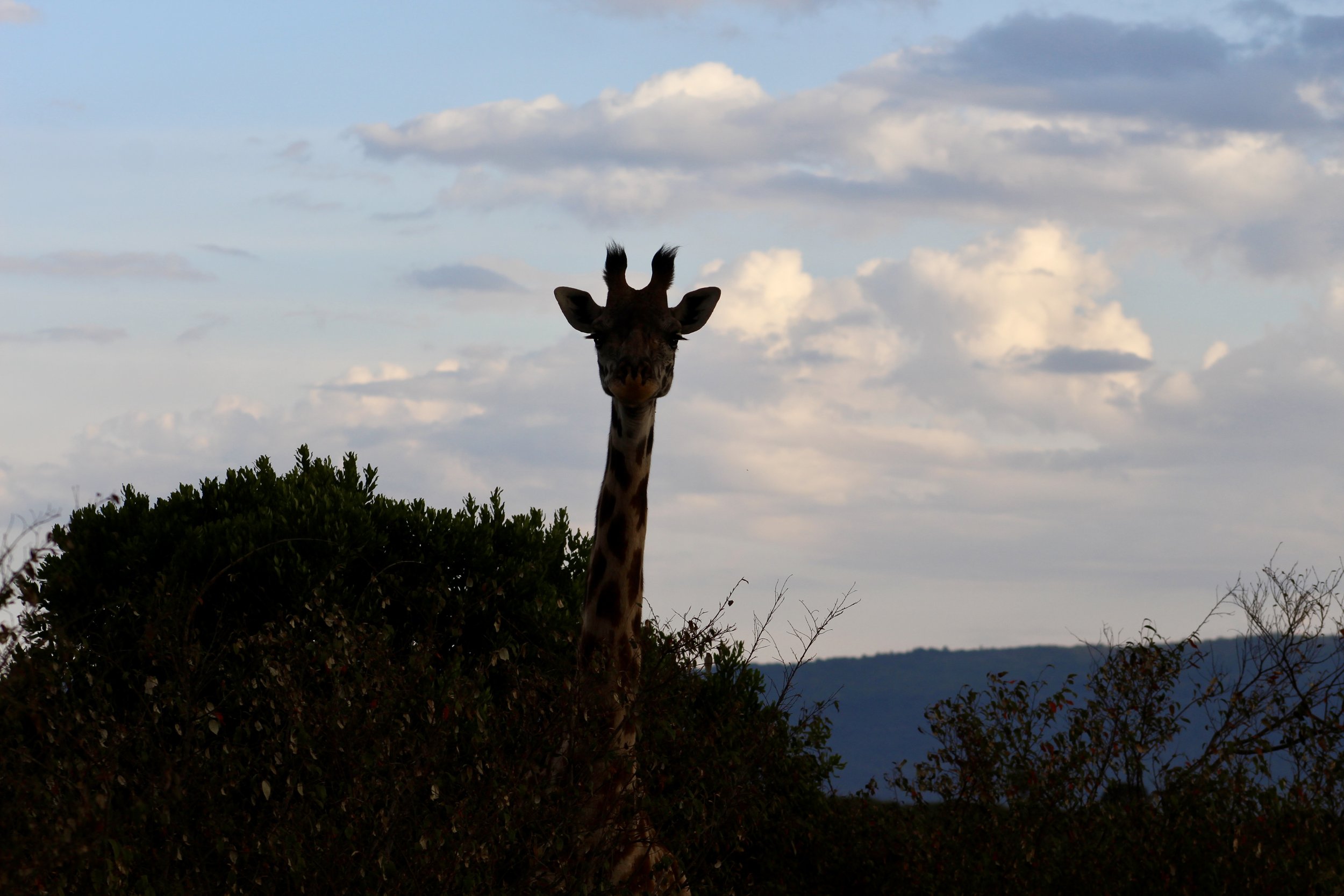Masai Mara
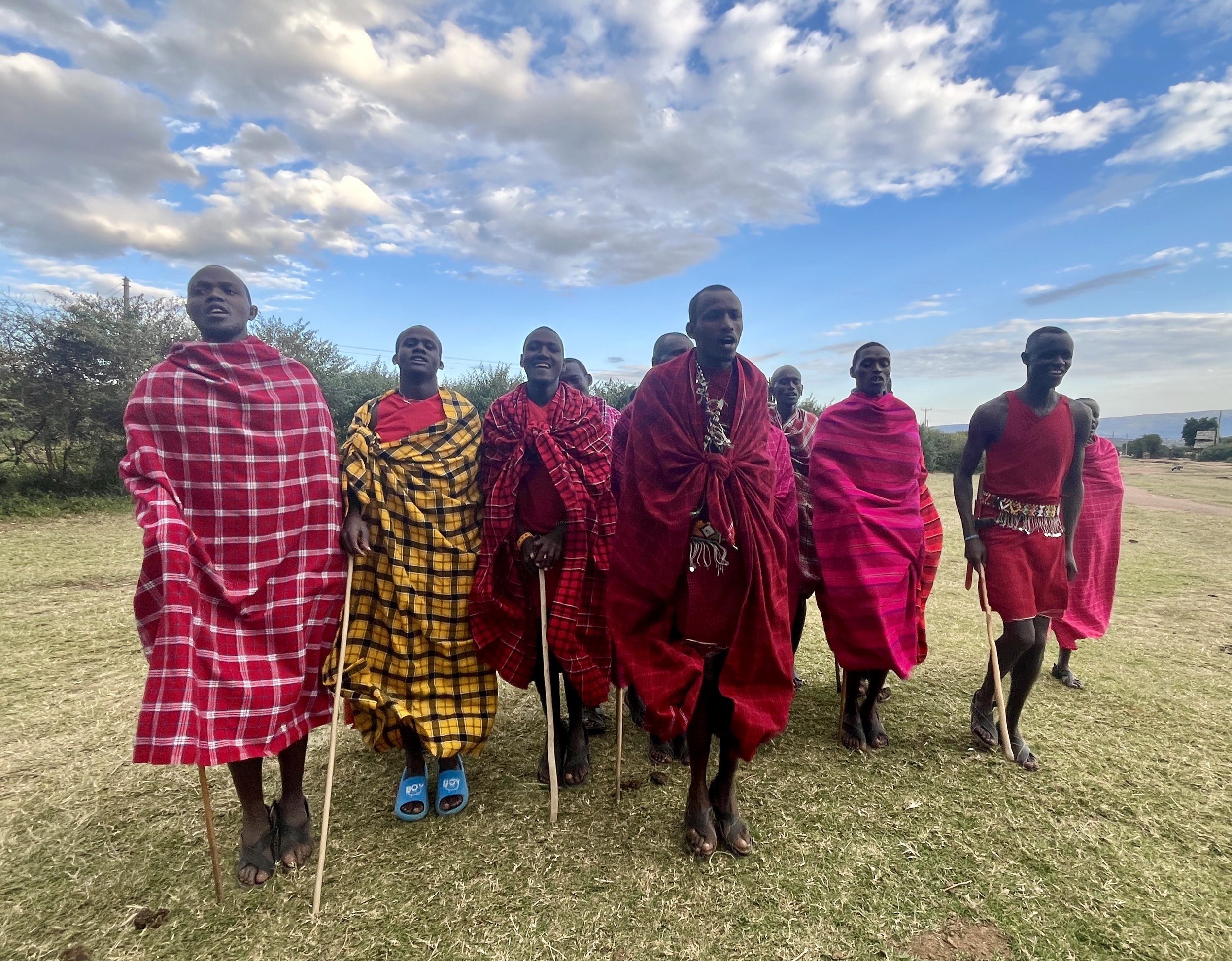
From Kisumu on the shores of Lake Victoria, we made our way south. From the hilly, green-terraced tea country, we wound our way steadily downhill. The earth fading from brick red to dusty yellow. Bright greens muted to olive grays. Sandy bottom creek beds with just a small muddy stream—gathering places for washing and water. Bright clothing draped across thorny Acacia. Dust devils and skinny cows. Long stretches between villages. Tin rooftops, painted plywood, piles of potatoes, tomatoes and fruit. Furniture, fuel, SIM cards for sale. Motorbikes parked up at the corner market. Men and women in conversation on a storefront stoop. Barefoot boys with tall sticks—slowly, purposefully trailing a herd of cattle. Women, hauling jerry cans of water. Precious and Heavy. Bright blanket Shukas draped across shoulders– some checkered, some striped. Deep reds, pinks and oranges. In stark contrast to the dry, scrubby landscape. Expansive, desolate, yet filled with life. Villages made from the earth, almost blending in to the hills behind. The Masai people straddling worlds—pastoralists still living close to the land, cellphones in hand.
This is the Masai Mara. Bordering the Serengeti of Tanzania. The most-visited National Park in Kenya. A protected reserve where big animals roam. September- the tail end of the great wildebeest migration. Thousands deep stretched out toward the horizon. Our driver expertly navigated us through the park, down the roads and across the ruts, wildlife at every turn. Lions, a leopard, elephants, zebra, hippos, crocodiles, a jackal, hyena, buffalo, impala, gazelle, antelope, topis, warthog babies and giraffes. And more. So much more..As a human spectator, it feels both awesome and intrusive. So many jeeps and humans with cameras. Safe and yet vulnerable. Up close to the rawest of the wild. Surreal and humbling. Unforgettable.
Some might consider the Mara the heart of Kenya. But I have begun to think of Kenya as a land with many hearts.
